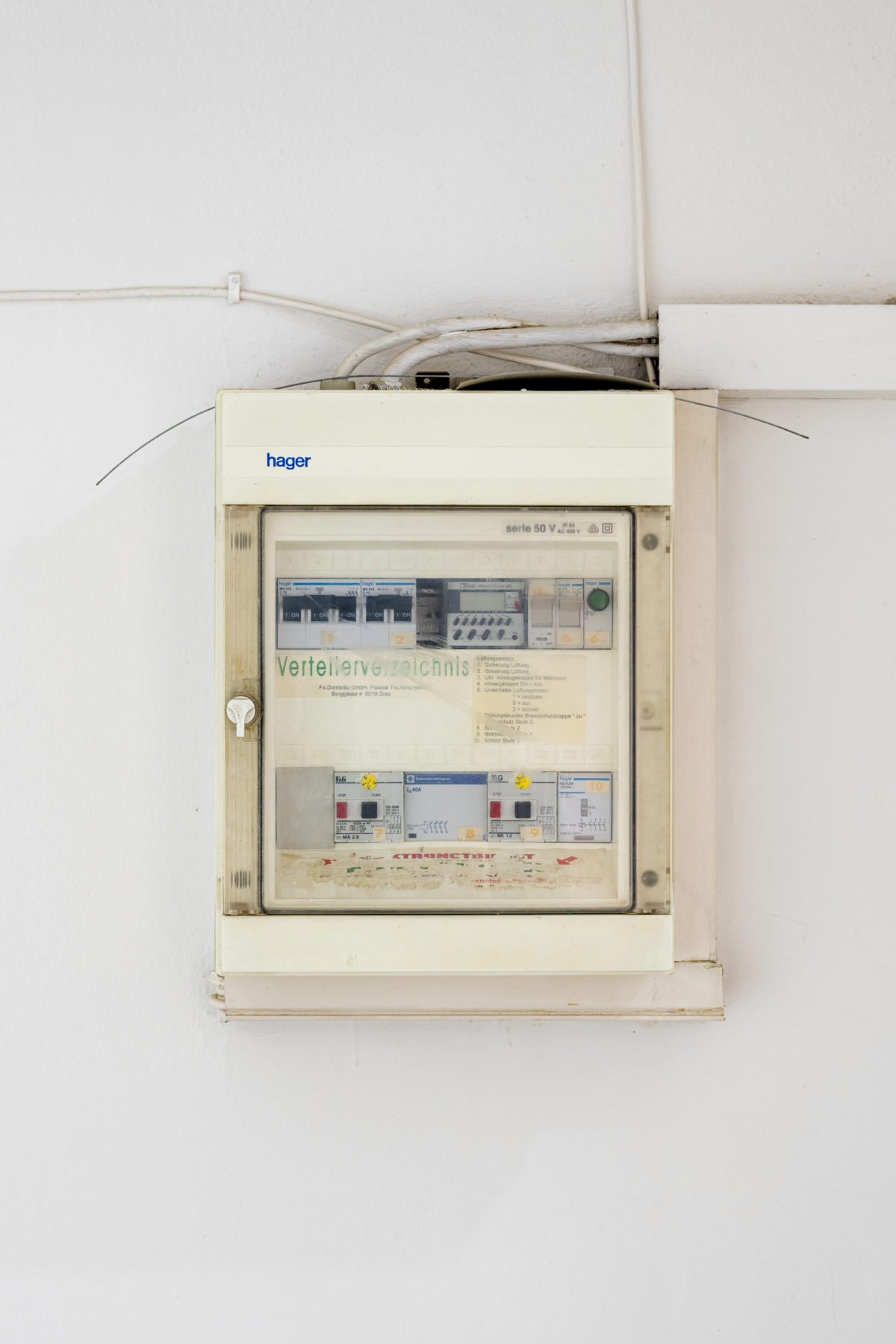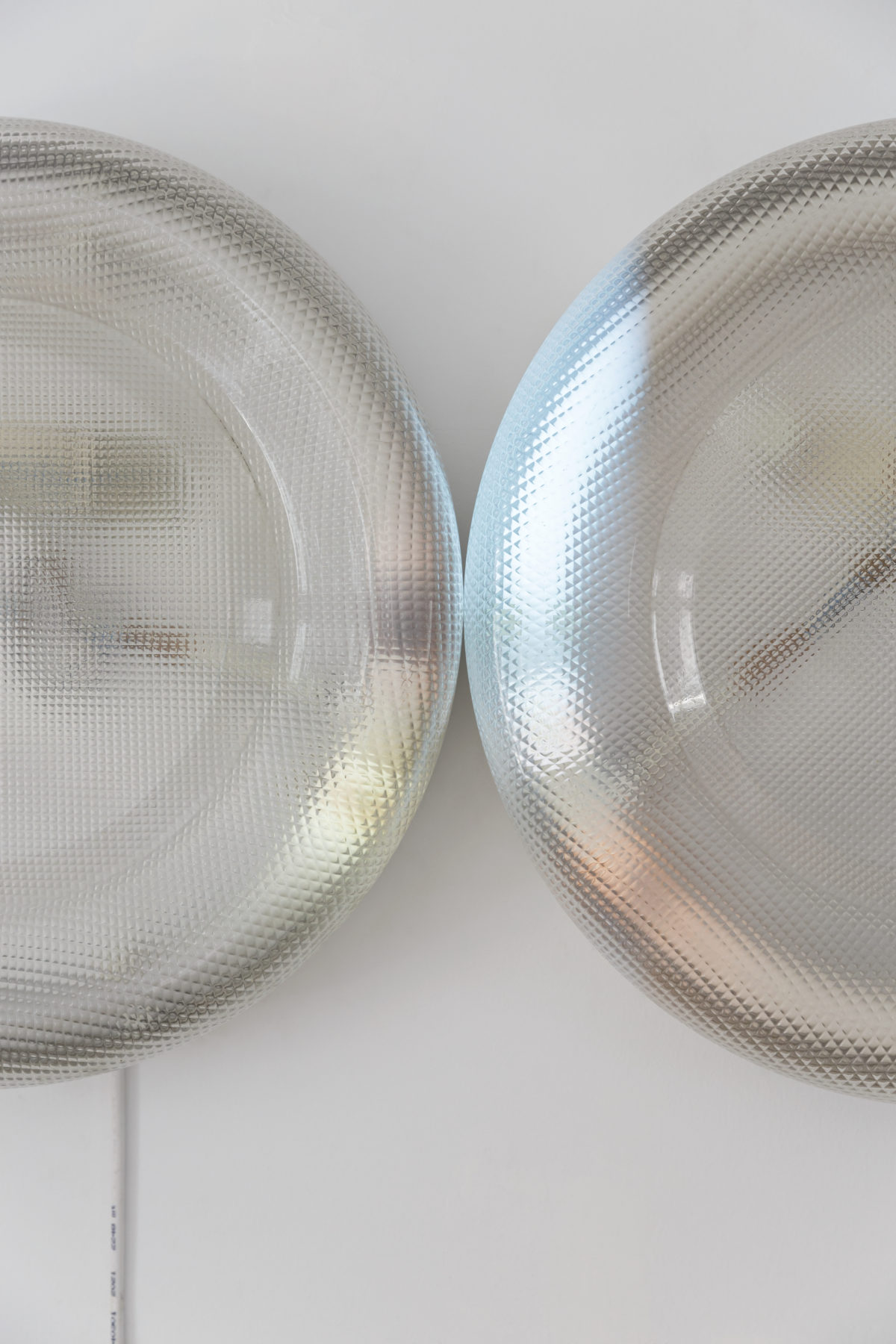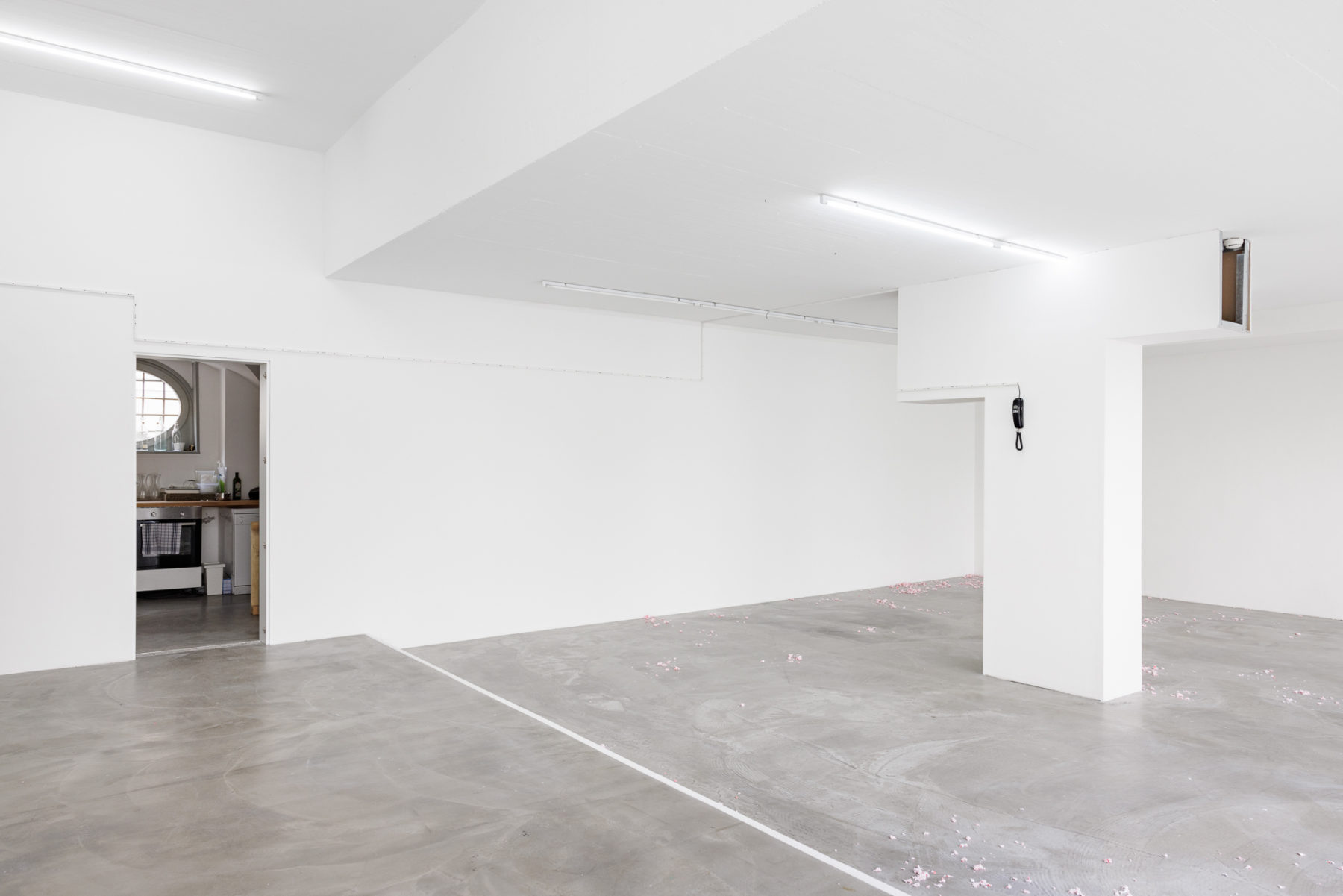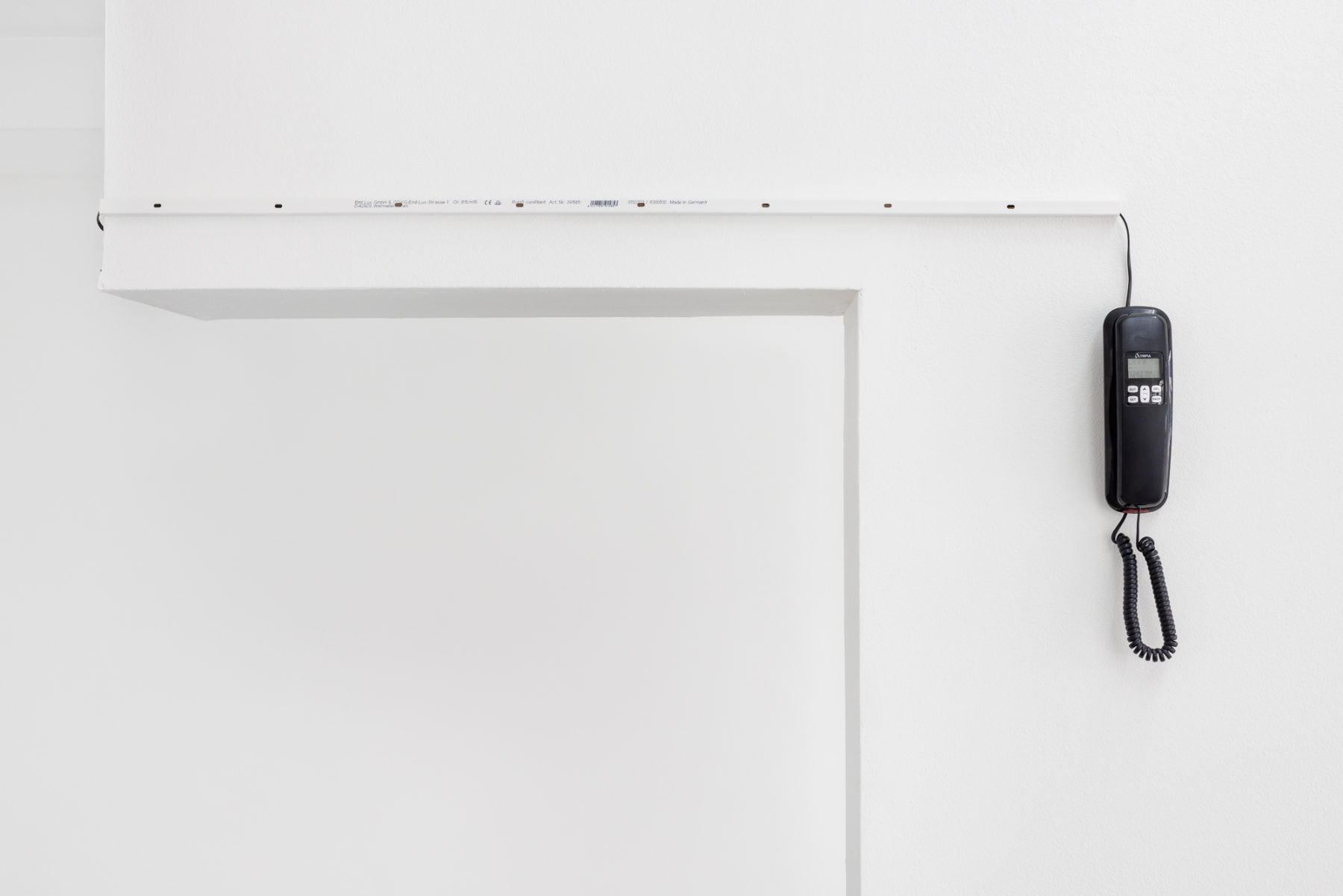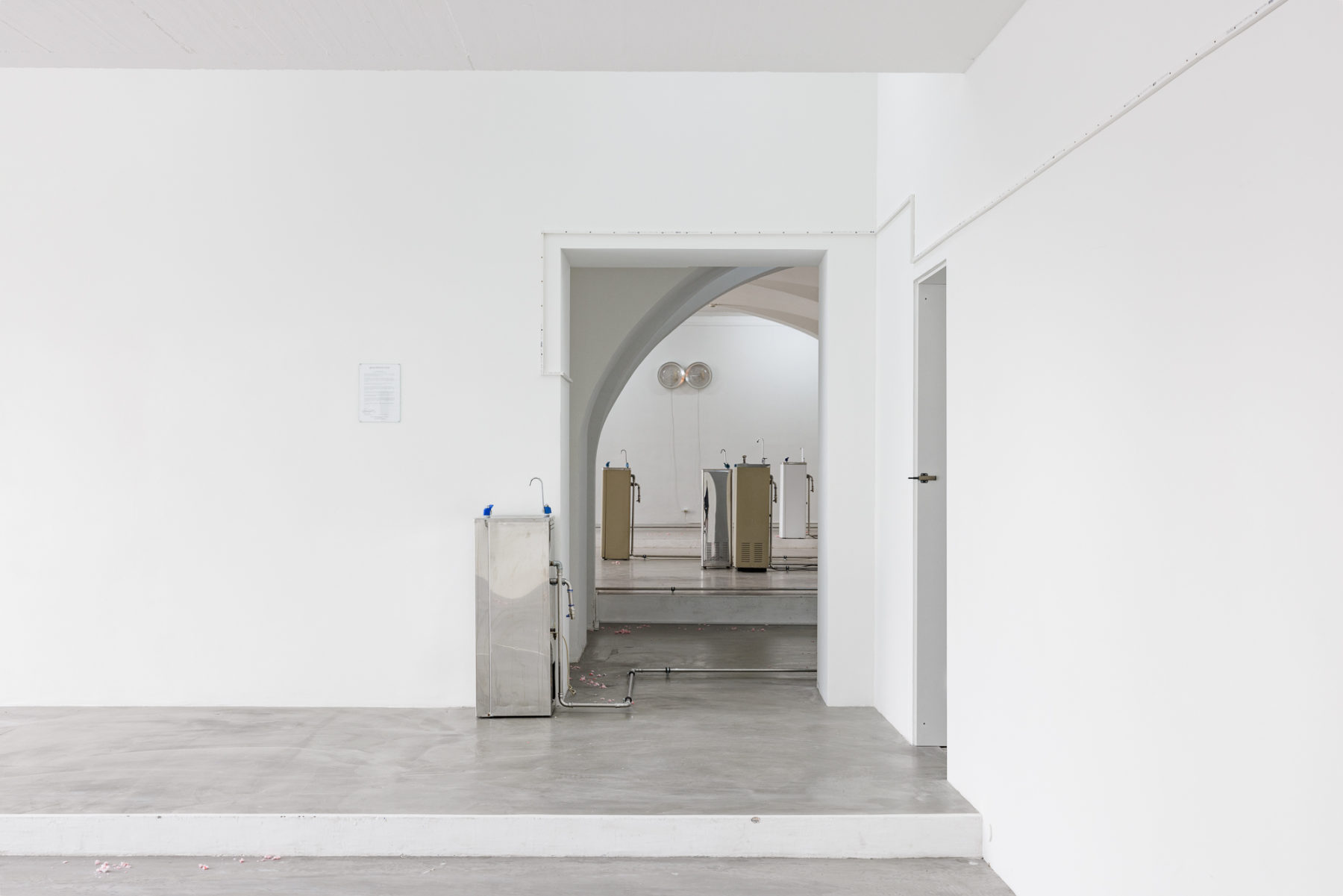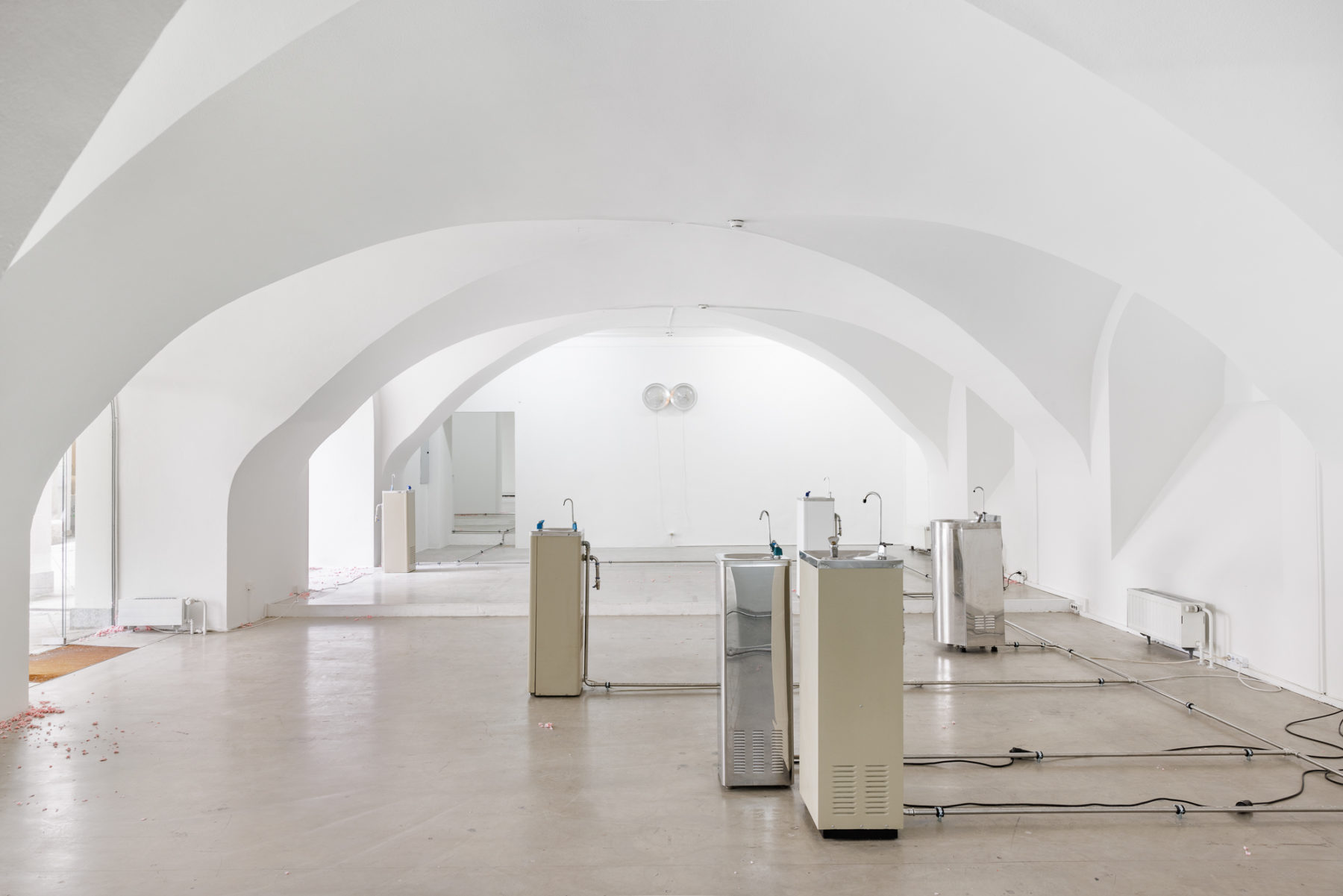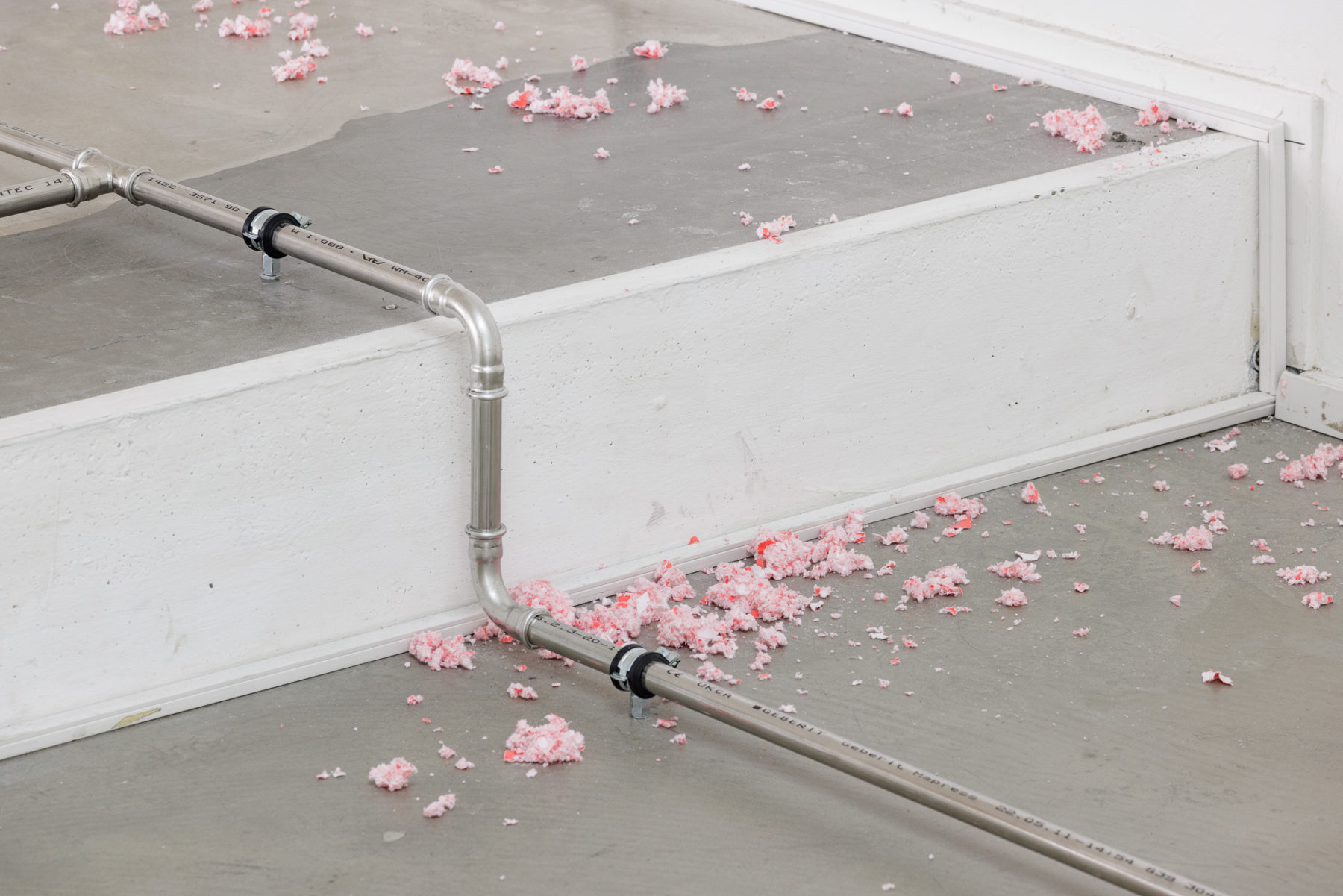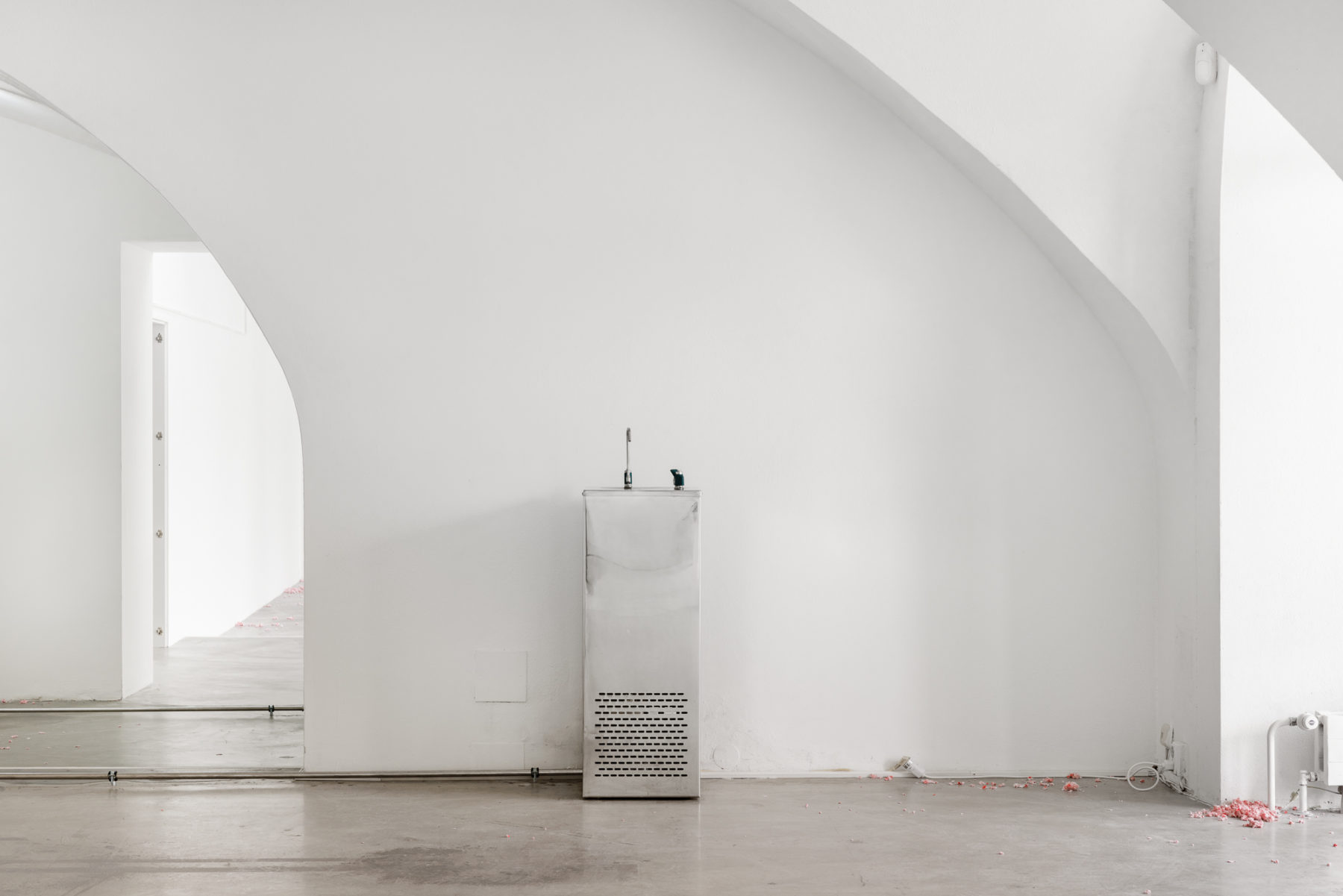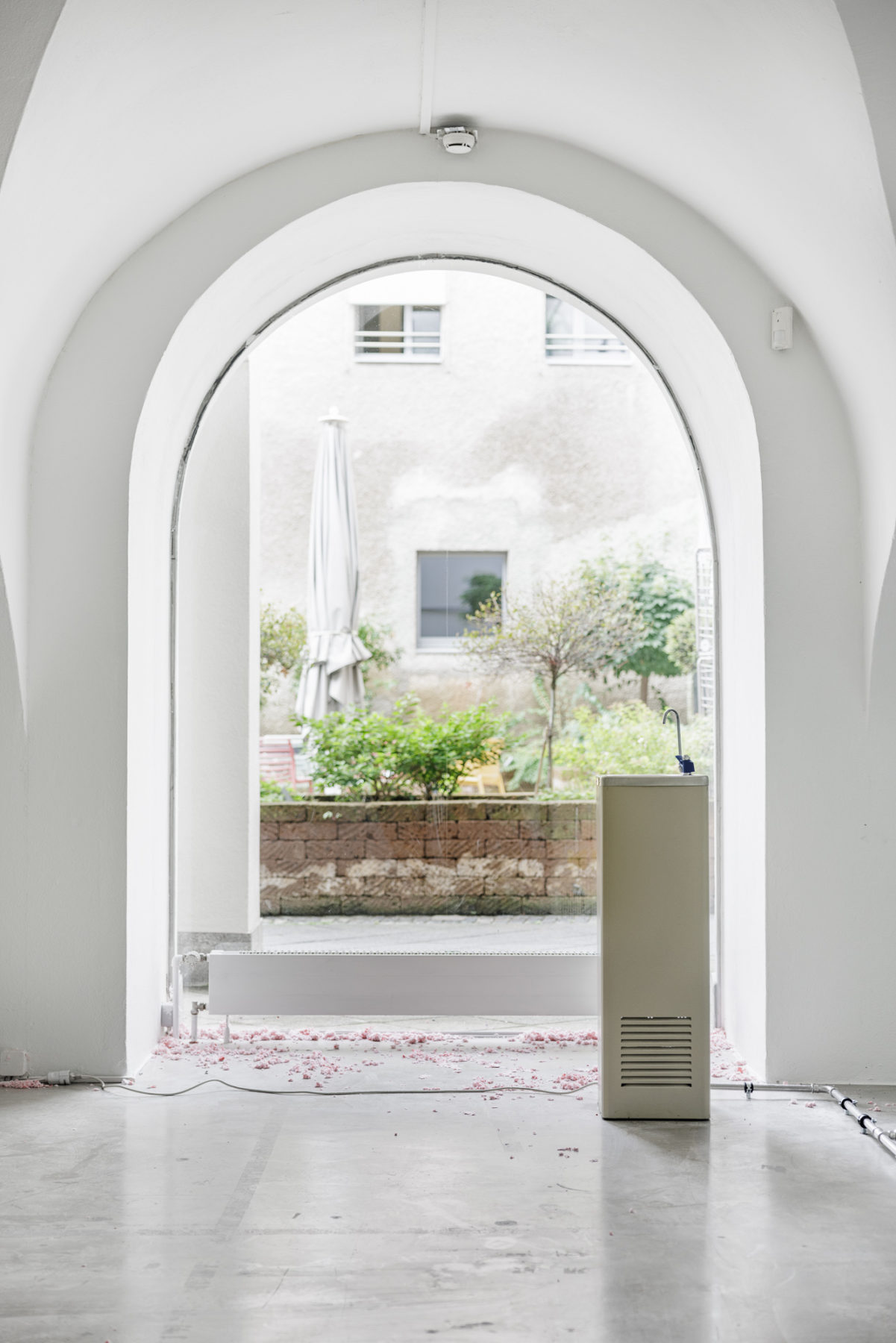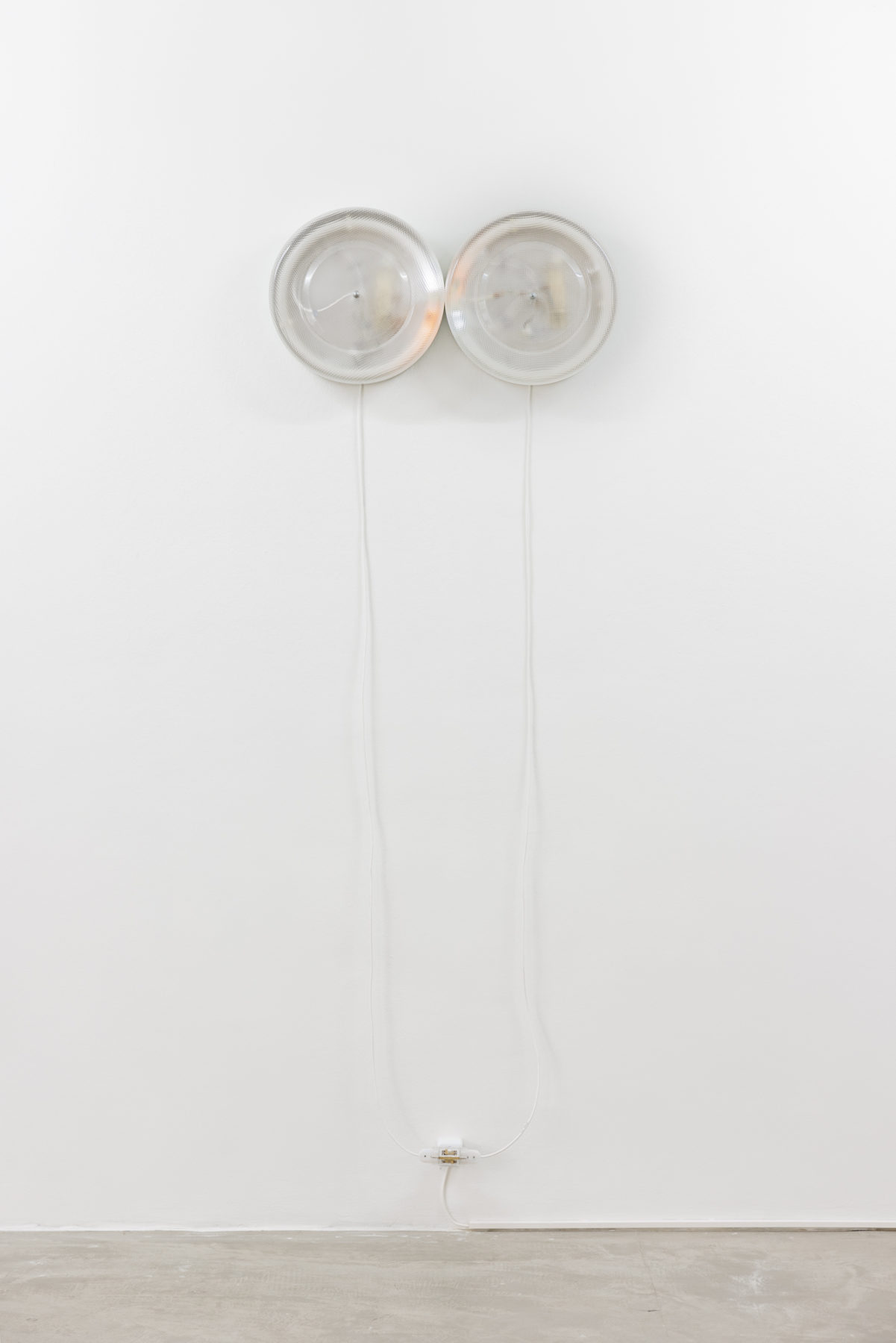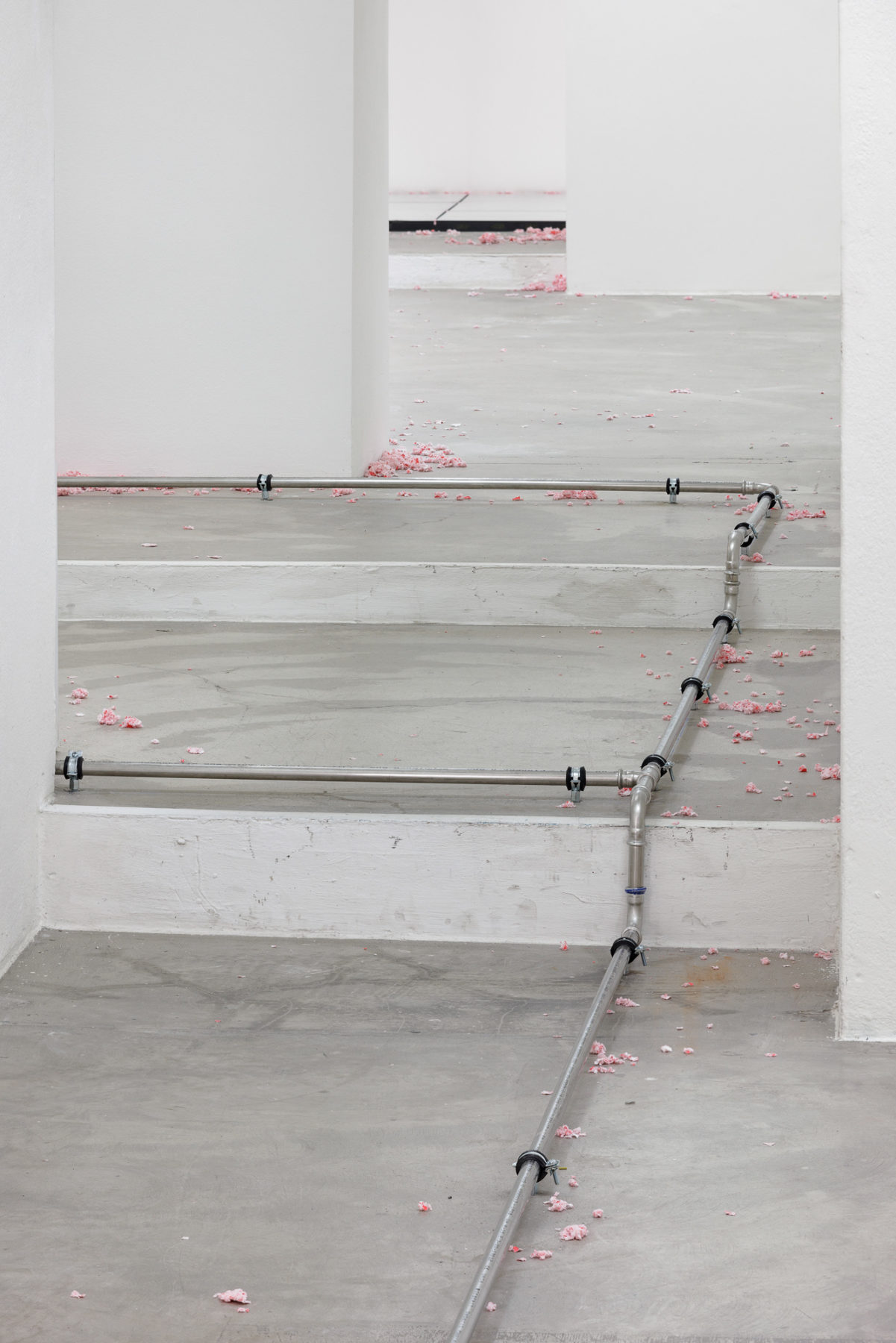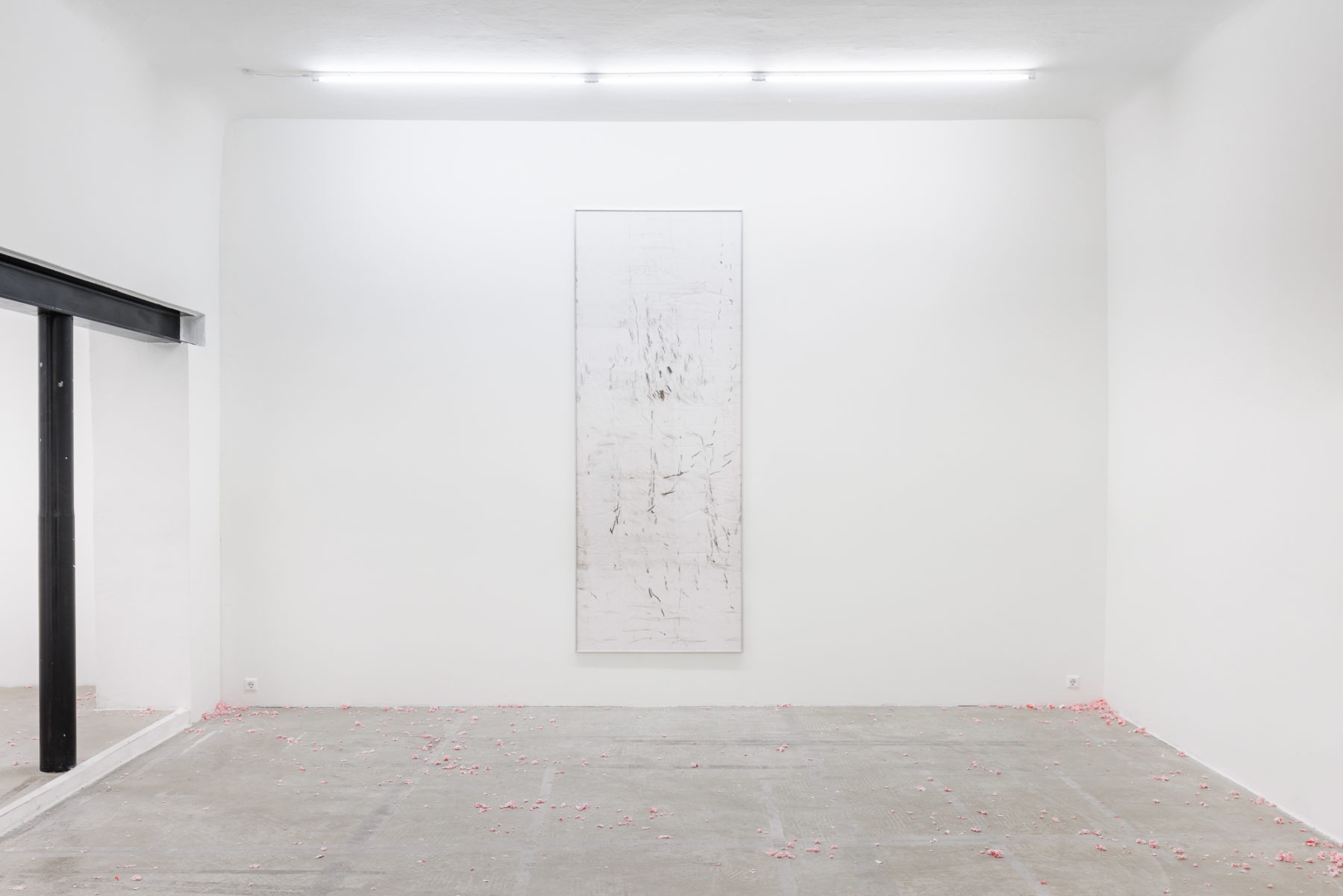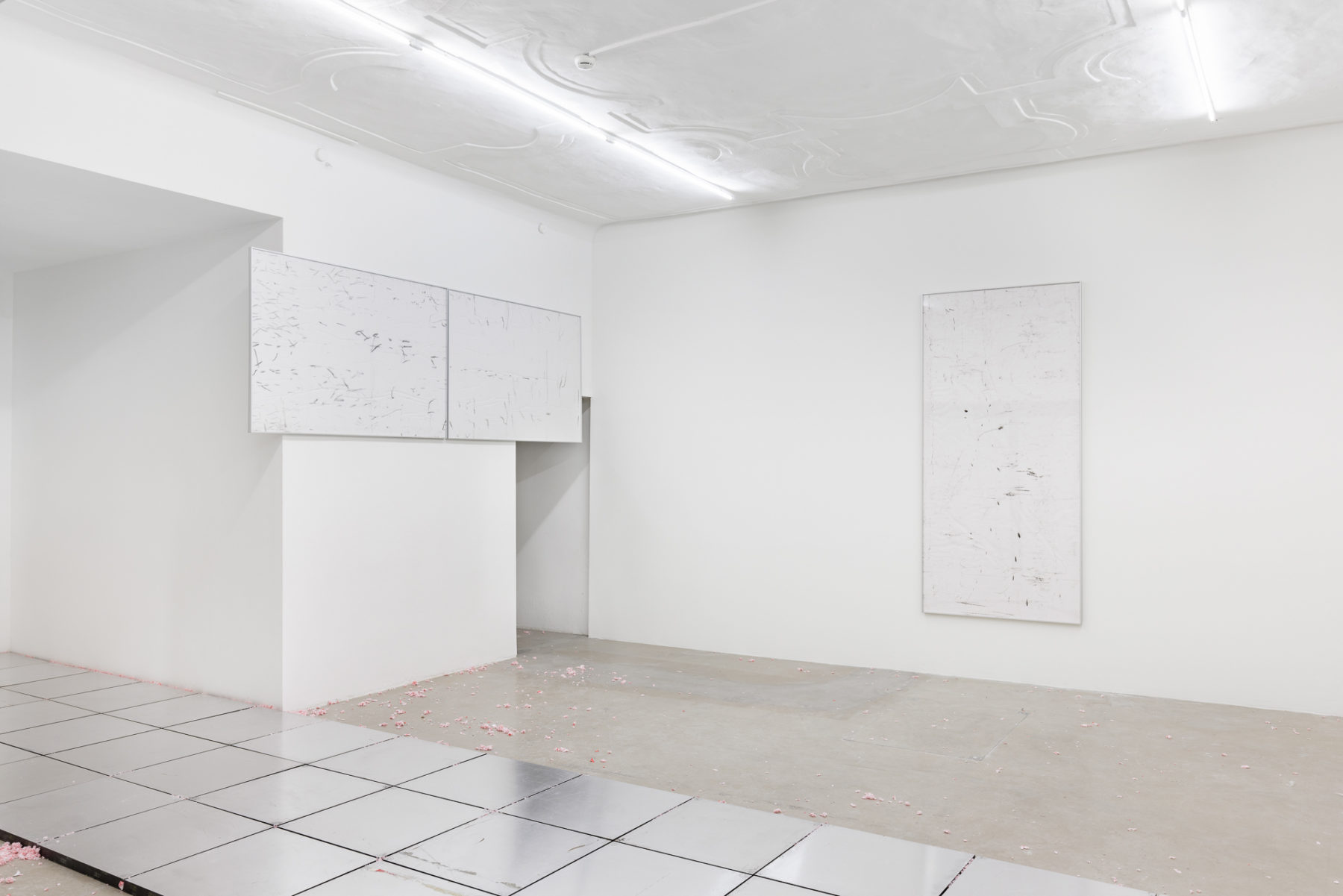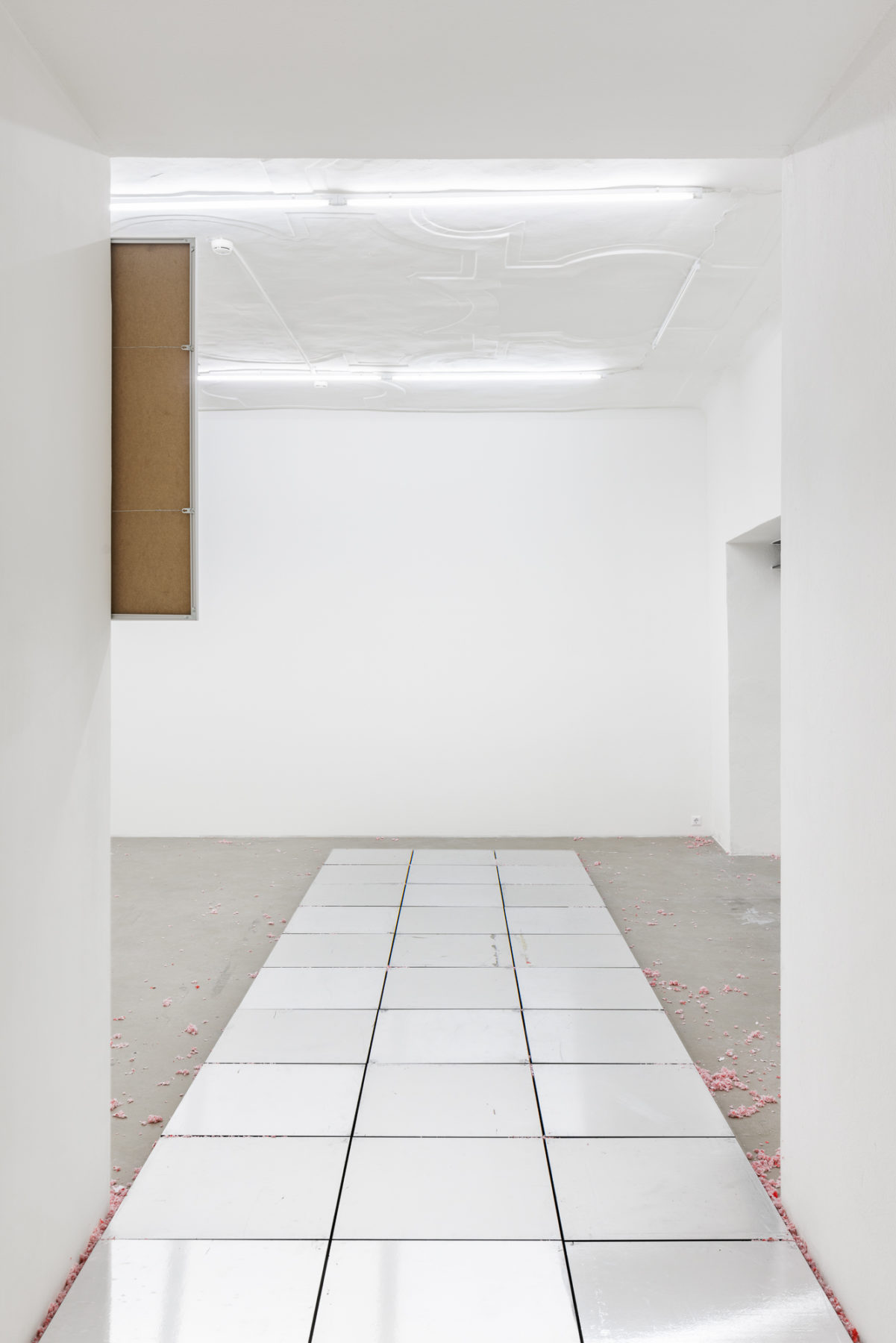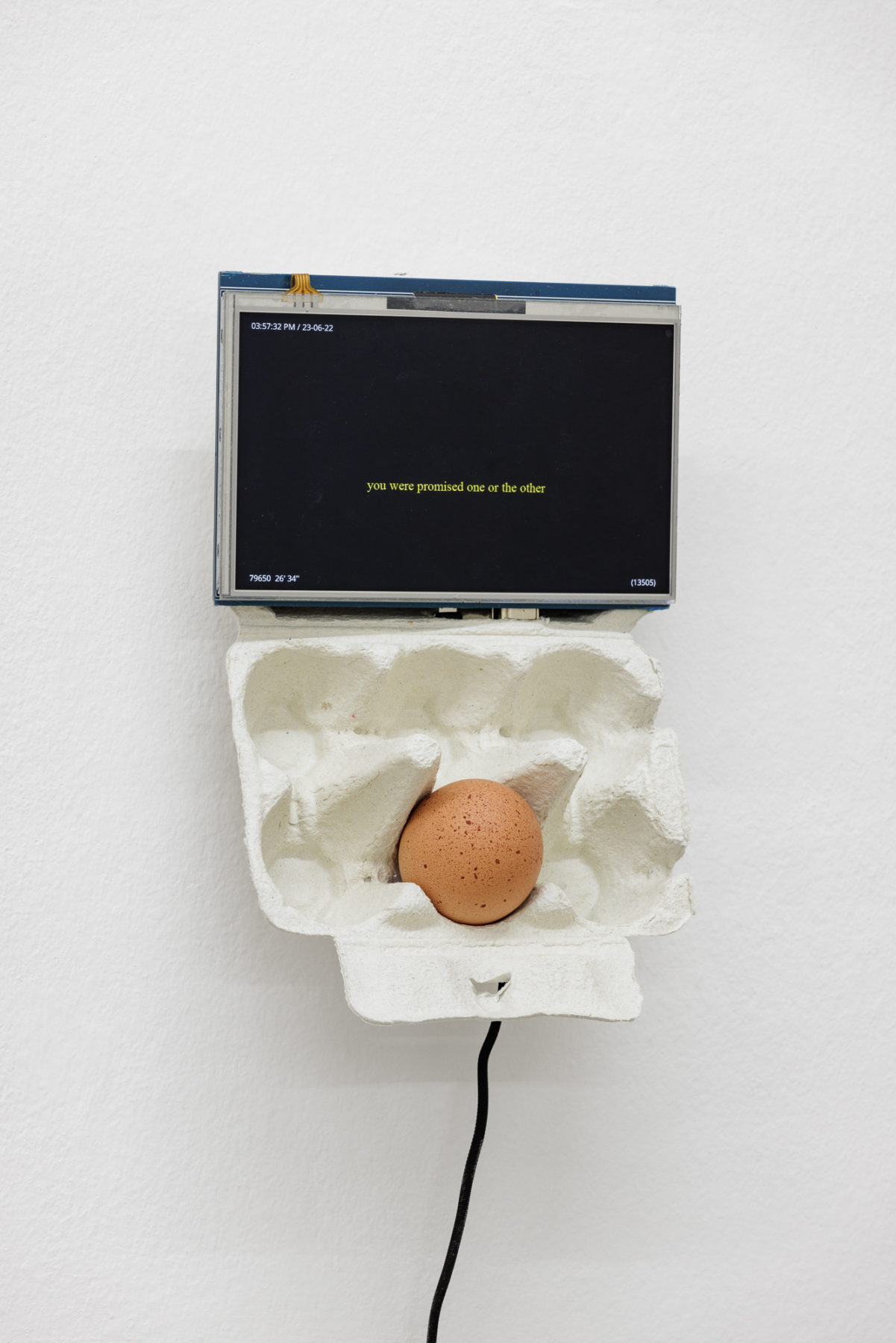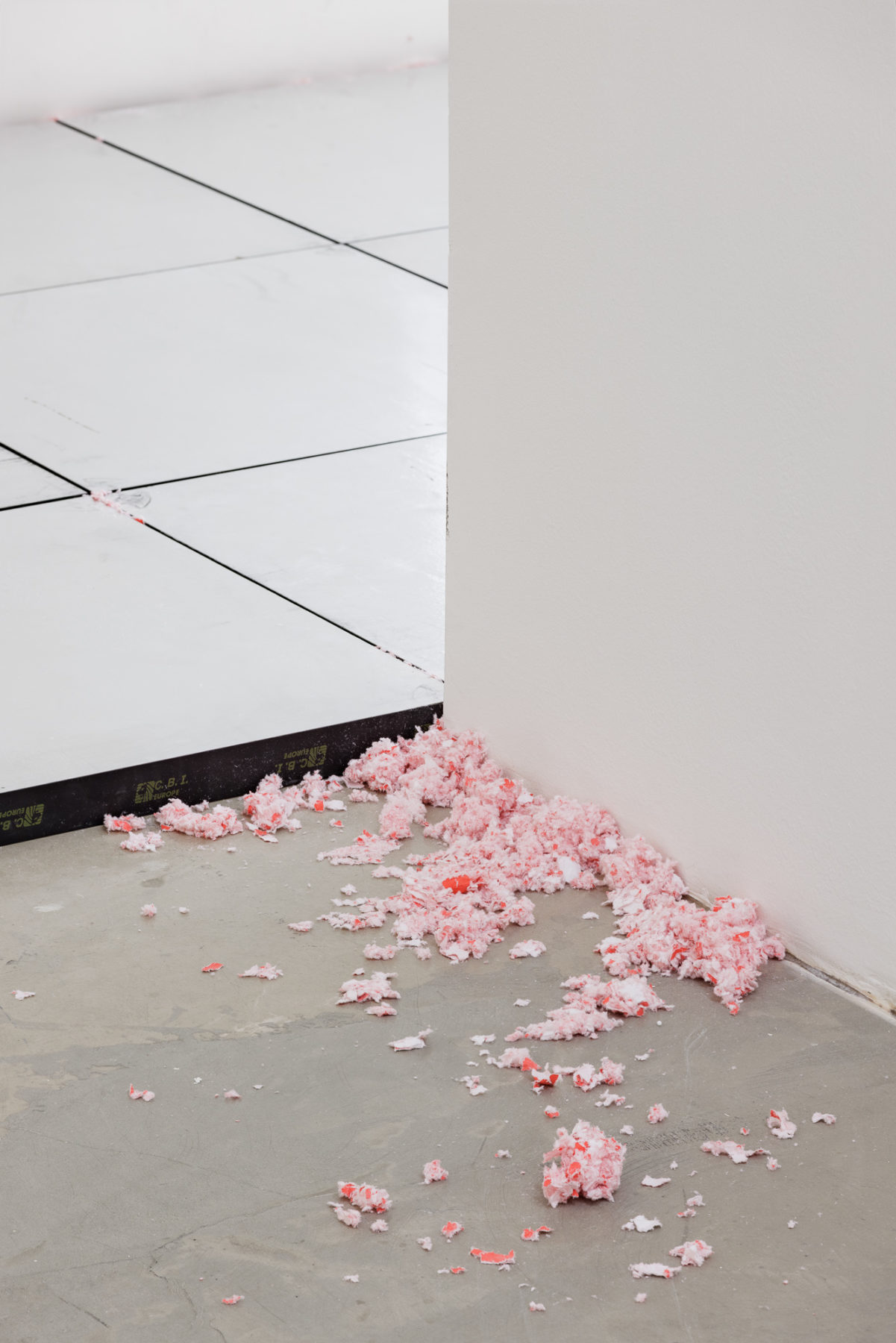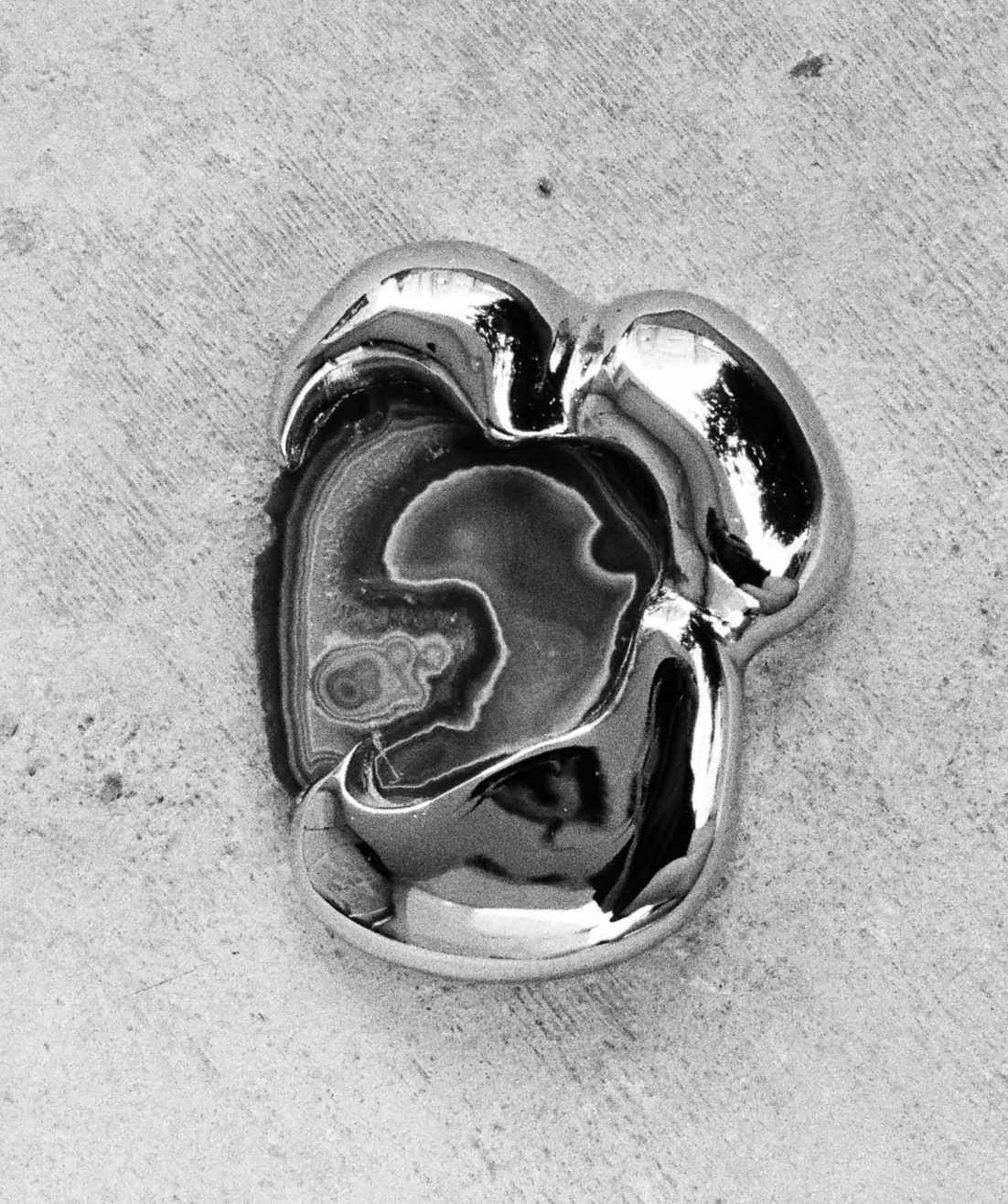
Maria Toumazou
Old Town Street (towards Photo Net), 2022
Pigment print on Hahnemühle FineArt Baryta, 325 gsm
Edition: 10 + 3 AP
16 x 23,5 cm, unframed
Numbered and signed certificate
€ 375,00* (incl. VAT, excl. packing and shipping costs)
Old Town Street (towards Photo Net) depicts the expressive painting of a female nude displayed in a framer’s shop window and is layered with the reflection of Nicosia’s old town. Resembling the processing and the becoming of an image, the analog photograph was shot at a close distance to Photo Net, Toumazou’s local photography store, where her pictures are developed and printed. The photograph is part of a series of 26 pictures resulting from numerous walks through Toumazou’s hometown. The series appeared for the first time in R, C, the publication that accompanied RHYTHM, CITIZEN, Toumazou’s solo exhibition at Grazer Kunstverein in 2022. One of them is now available as an exclusive artist’s edition.
*The editions are available to the members of Grazer Kunstverein. It is possible to become a member when purchasing an edition.
Maria Toumazou (b. 1989, Cyprus) is an artist and publisher based in Nicosia. Recent solo presentations include RHYTHM, CITIZEN, Grazer Kunstverein (2022); SCRAP B, Point Centre for Contemporary Art at Moufflon Bookshop, Nicosia (2022); Coil, Hot Wheels Athens (2021); and Fair-face Elysée, Thkio Ppalies, Nicosia (2019), among others. Toumazou has participated in group exhibitions including SISTERHOOD, Streaming voices unifying energies, Angelo Plessas and P.E.T. Projects, Nicosia (2021); Touch Release, Nassauischer Kunstverein Wiesbaden (2021); Hypersurfacing, NiMAC, Nicosia (2019); Soft stone documents, Municipal Arts Centre, Limassol (2017), among others. Neoterismoi Toumazou (Toumazou’s former collective with Orestis Lazouras and Marina Xenofontos) was invited as a special guest to the Cyprus Pavilion at Biennale Arte 2017, Venice, curated by Jan Verwoert. She was a guest student at Städelschule, Frankfurt, after completing her studies at Goldsmiths College, London, and the Glasgow School of Art.
R, C appeared in conjunction with the exhibition RHYTHM, CITIZEN by Maria Toumazou. It is the third in a series of small volumes of correspondence, responses, and conversations, which accompanies the exhibition program of Grazer Kunstverein. R, C is a visual and textual passage through living and making in the Nicosian landscape. It combines artist statement, photography, and rap. R, C summons three voices: On The Solitary Crossing Of Impassable Passages, a statement by Koula Savvidou, written on the occasion of her eponymous exhibition at Diaspro Art Center, Nicosia, in 1995; EXHAUST, a selection of lyrics written by Tasos Lamnisos / x.ypno for ΕΞΩΣΤ (2021), a 10-track album by steliosilchuk & x.ypno; and a selection of 26 photographs taken by Maria Toumazou between 2021 and 2022.
Editor: Tom Engels
Conceptual Development: Maria Toumazou, Tom Engels, Julie Peeters
Translation: EXHAUST: Tasos Lamnisos, Maria Toumazou/ On The Solitary Crossing of Impassable Passages: Maria Toumazou, Koula Savvidou, Tom Engels
Graphic Design: Julie Peeters
Printing and Binding: Benedict Press, Münsterschwarzach
Edition: 350
Typeface: Kleisch GK by Chiachi Chao
64 pages, color, English
ISBN: 978-3-9505230-2-7
Price: 9,- euro, 5,- euro for members
Join us for the book launch of Borrowed, published Thkio Ppalies Project Space, Nicosia, and Grazer Kunstverein (2022).
Borrowed is a bi-lingual publication (English and Greek) that presents a series of visual essays and texts, exploring notions of sharing and indebtedness, writing and sentiment, appropriation and homage, memory and time. It is the outcome of Maria Toumazou’s fellowship with Formworks, a curatorial initiative developed by Evagoras Vanezis at Thkio Ppalies Project Space, Nicosia. The publication features contributions by Aristotelis Nikolas Mochloulis, Georgia Triantafyllidou, Maya Tounta, Koula Savvidou, Evagoras Vanezis, and Maria Toumazou herself.
The publication is co-published by Thkio Ppalies Project Space, Nicosia and Grazer Kunstverein. The realization of it is kindly supported by Hot Wheels Athens, and the Cultural Services of the Deputy Ministry of Culture, Cyprus.

On the occasion of RHYTHM, CITIZEN, the solo exhibition by Maria Toumazou, x.ypno & steliosilchuk will perform EXHAUST, a 10-track album released by Moneda in 2021. The album blends trap and garage music with distinct Cypriot motifs while confessing youthful sentiments of uprootedness and separation. Roaming through the landscapes of Cyprus, the album is “framed by a car’s windshield, as it cruises through the Cypriot scenery: from the rocky mountainsides in Paphos’ forest, through the tunnel, stretching all the way to the roundabout in old town Nicosia. […] Like a car’s rim on the highway’s asphalt as it hits fifth gear, passing by cyclamens rooted in rocks and they, in turn, cannot but breath in its fumes and turn them into oxygen.”
The concert takes place at CAFÉ WOLF, Annenstraße 18.
Tasos Lamnisos / x.ypno (b. 1998, Cyprus) is a musician and writer based in Nicosia. He is a member of NYX, a Nicosia-based DIY electronic music collective, and XMK, a four-member rap group. His practice as a producer and singer-songwriter centers upon the question of (be-)longing with a pronounced focus on the themes of partition, uprooting, and social exclusion. In 2021, he completed his MSc in Political Science: Nationalism, Ethnic Conflict, and Development. He is the author of Hyphenated Identities: Voices from the Watchtower During the Cypriot Civil War, Cambridge University Press, 2022.
Stelios Ilchuk (b. 1993, Cyprus) is a visual artist and music producer based in Paphos. Having lived in London, the UK music scene significantly impacted his musical output, focusing on minor melodies and heavy bass lines through an intuitive way of music making. His recent return to Cyprus sparked an exploration of the local music scene and a musical expression of the relief and struggles of being back home while expanding on local and global musical influences.
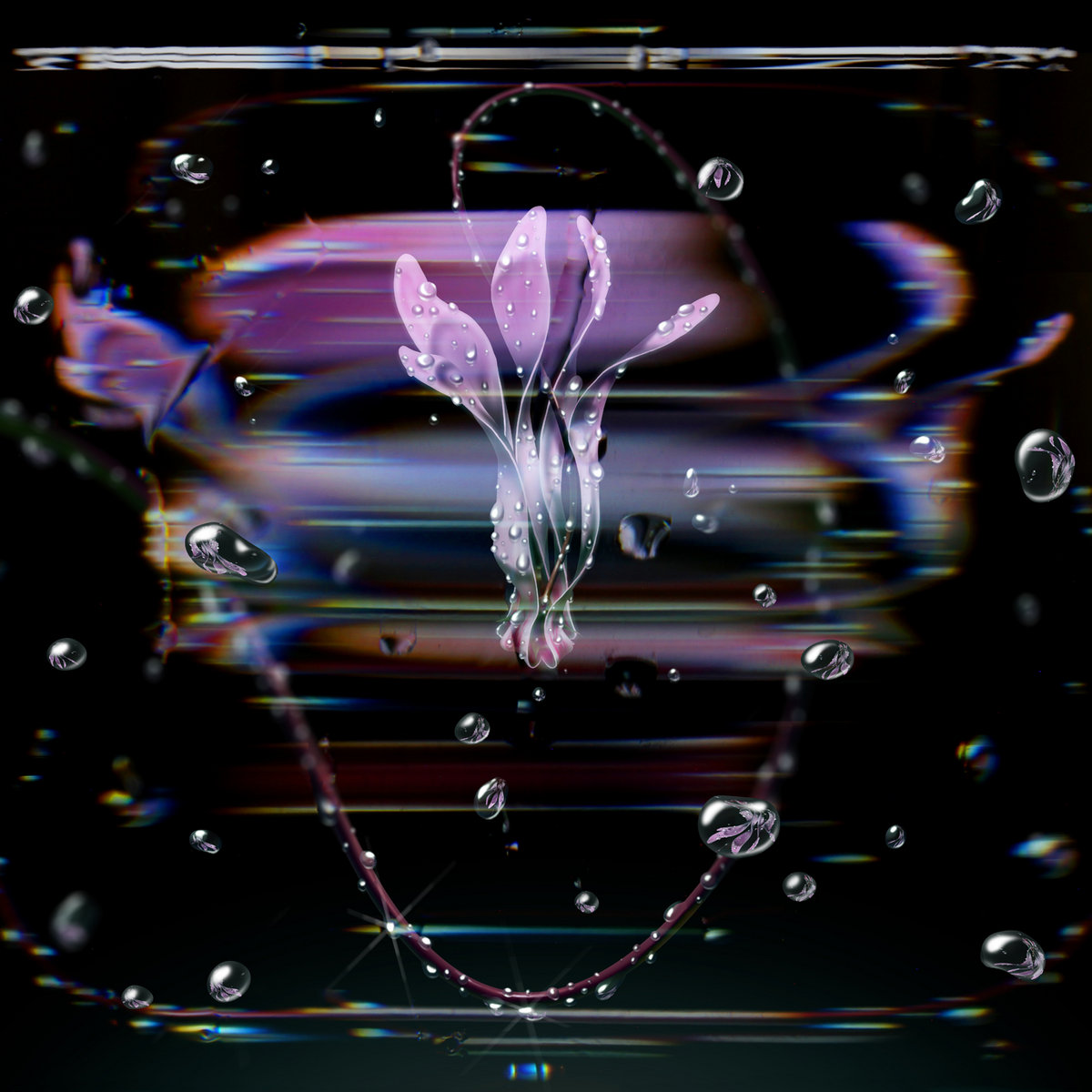
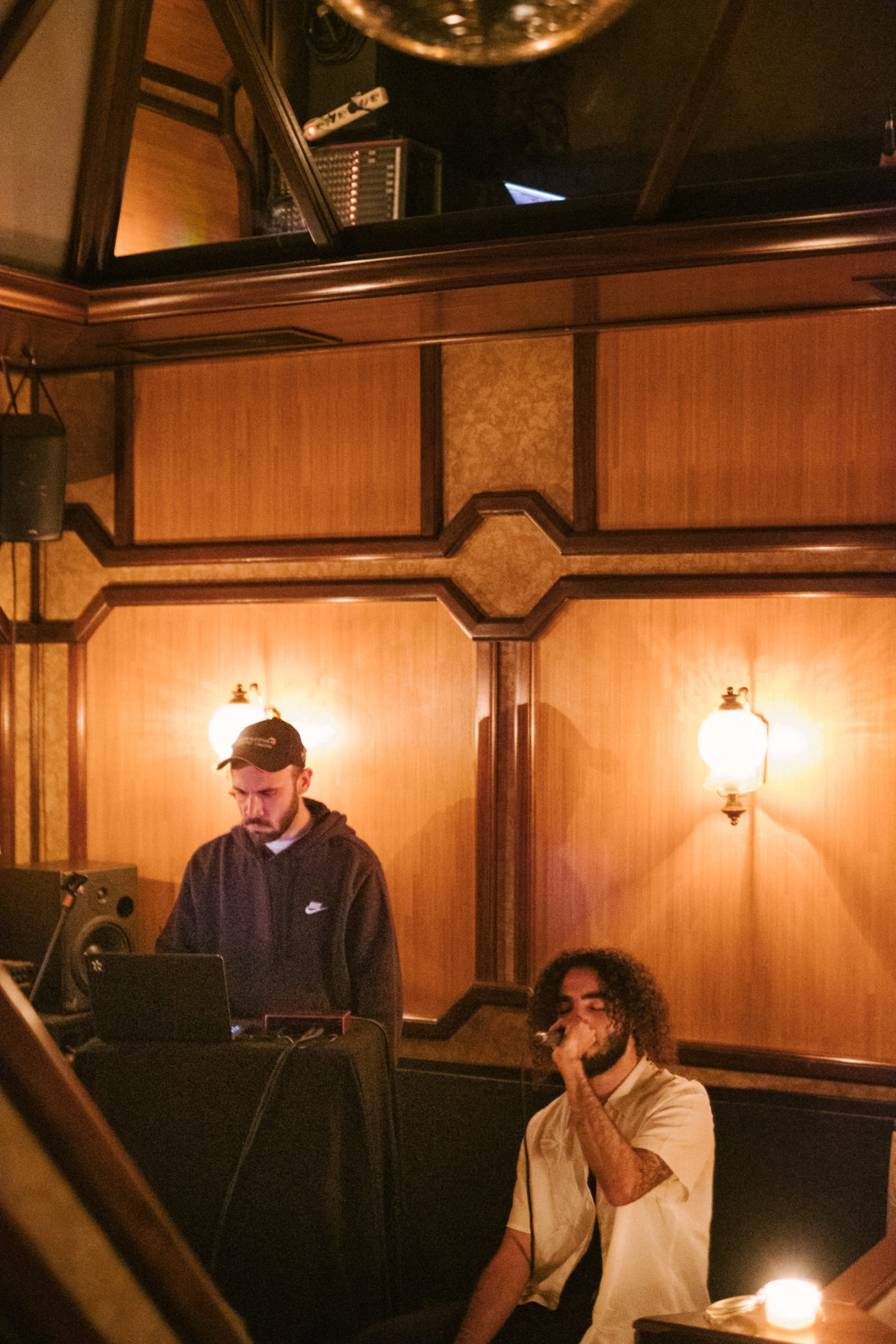
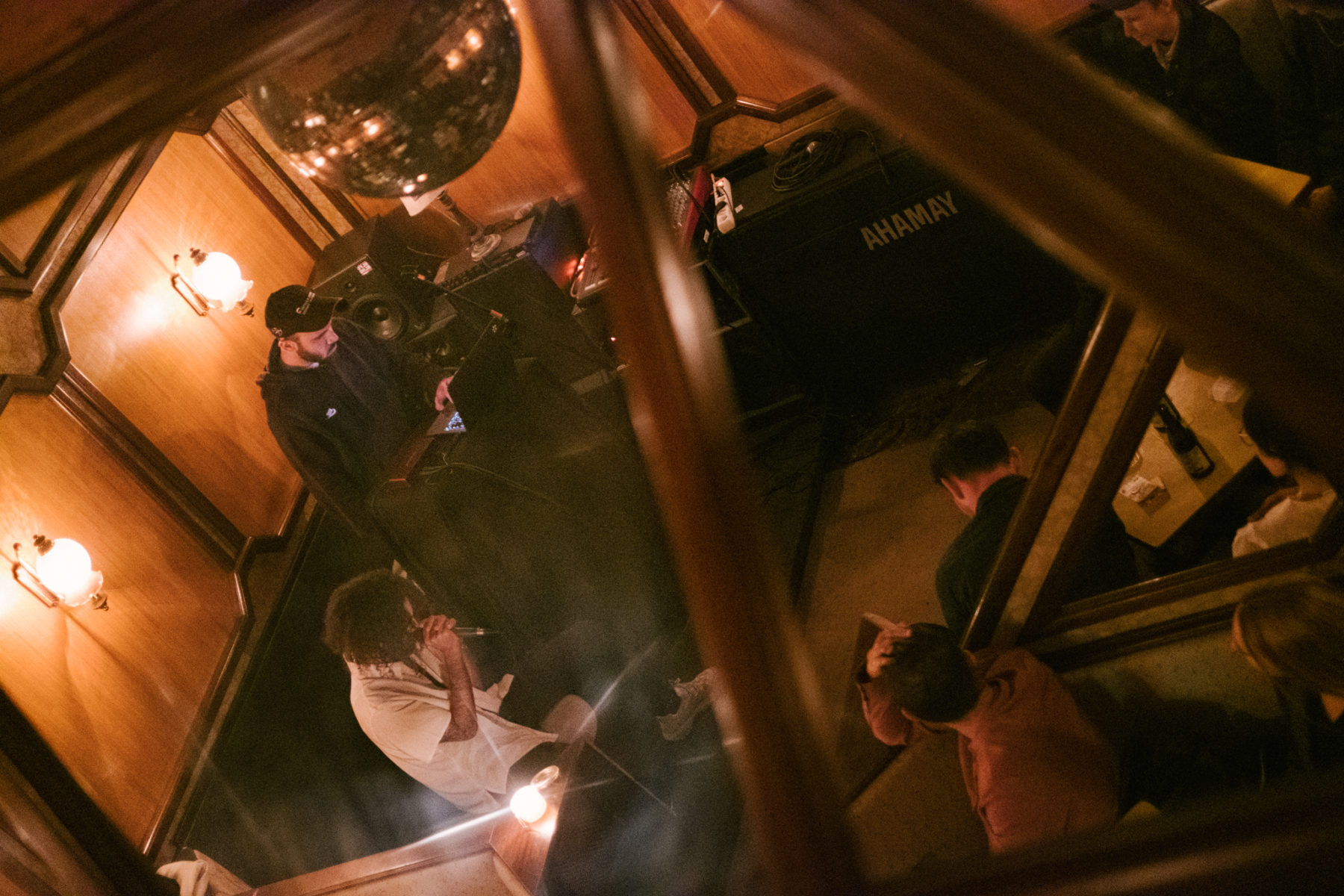
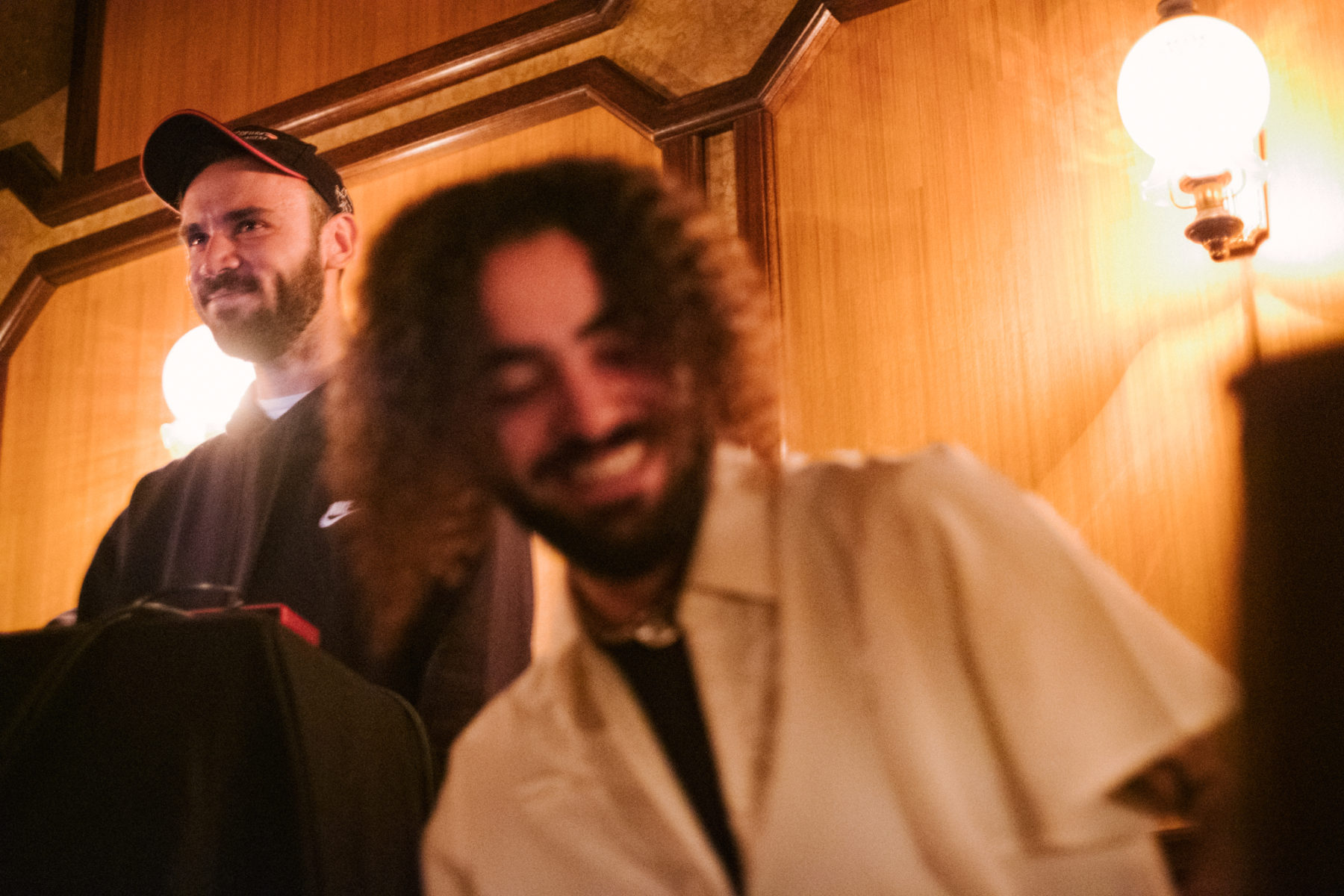
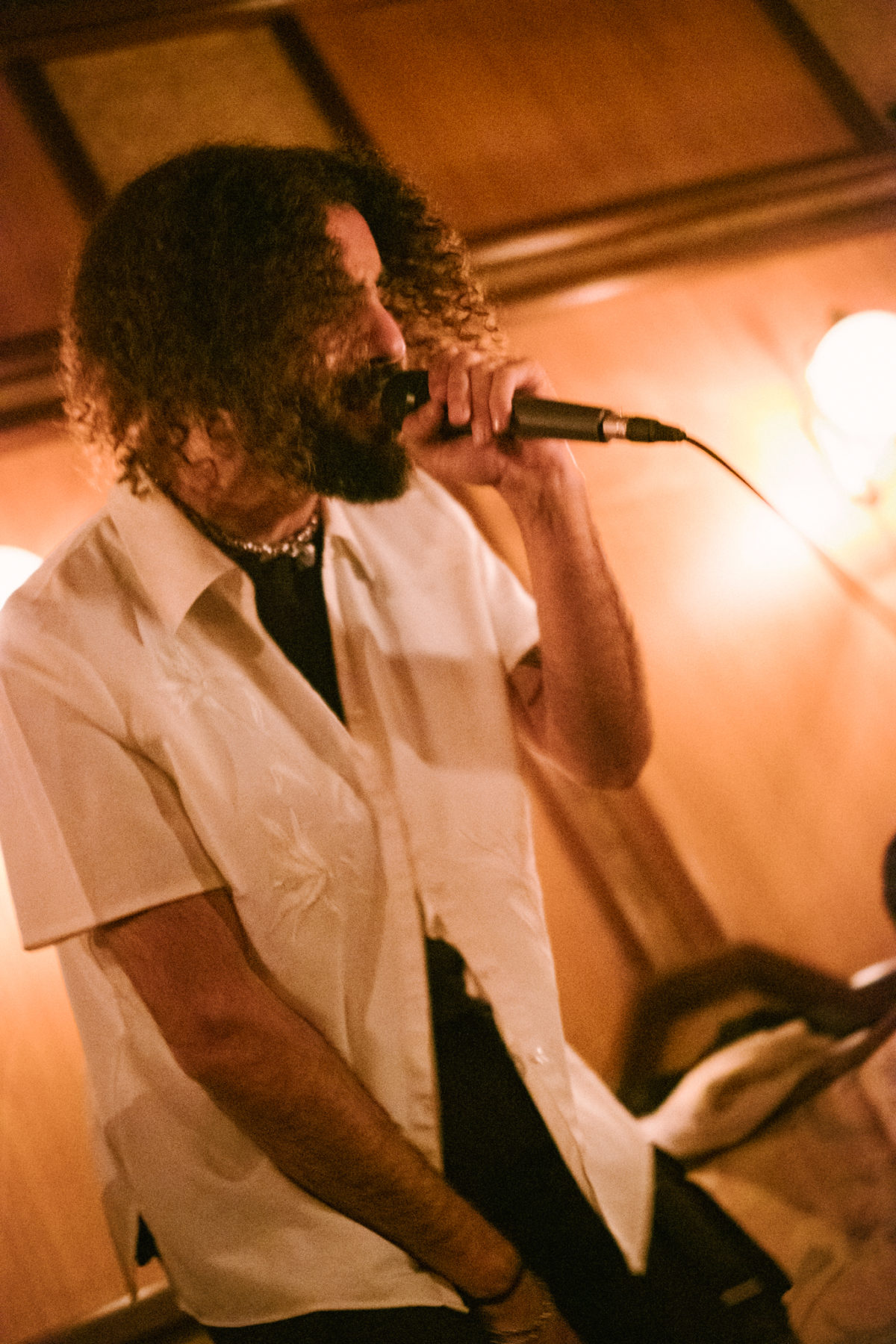
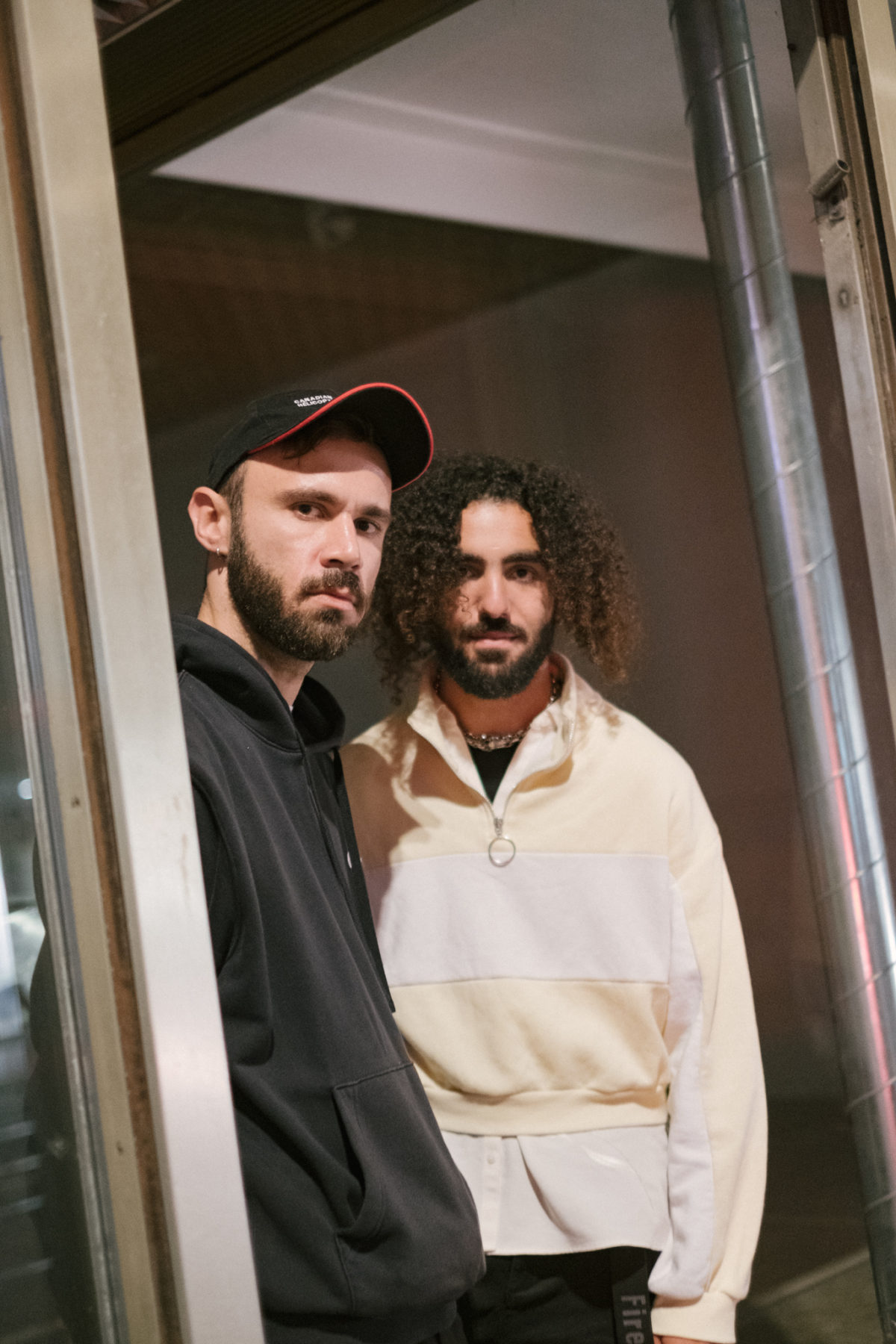
“It all started with a swinging bell,” she said. “I want the bell to crack.”
When a bell is struck, sign and time are given. For citizens to celebrate life in Old Town, for them to hide or worship, to lay off workers and to start again, to be reminded that life is finite, for the clearance sale to begin, for the photographer to rinse her exposed paper, a safelight blinking. Every time a bell is struck, it rings within. In this mutual implication of time and populace, RHYTHM, CITIZEN resounds.
RHYTHM, CITIZEN converges the brand names of two manufacturers of clocks and watches: Rhythm and Citizen. Found and coupled, they set the scene for an exhibition that unravels and complicates how the measures of time move and make move; how they give pulse to artifacts, their fictions and patina; how their fleetingness tantalizes the making of an image.
RHYTHM, CITIZEN punctuates the Grazer Kunstverein by way of sculpture, photography, design, and situated interventions. It marks the instance when time is halted, frozen and encrusted, and then again set into motion. It wandered from the city of Nicosia, like a passage or a crossing, like a captor of time—eyes unfurled, then, again, shut.
RHYTHM, CITIZEN takes shape through the cadence of a poem, the periodicity of labor, the sliding of glass doors, the frequencies of life, the patterns of music, and the movement marked by a succession of strong and weak elements.
RHYTHM, CITIZEN gathers friends and collaborators, neighbors and facilitators: Felix Taylor (Platten Haus), Koula Savvidou, Tasos Lamnisos (x.ypno), Stelios Ilchuk, Claudia Paschalides, Kyriakos Kyriakides, Marietta Mavrokordatou, and Photo Net.
RHYTHM, CITIZEN is an occasion for EXHAUST [ΕΞΩΣΤ], an album by x.ypno & steliosilchuk to be played aloud and alive, and for Borrowed, a publication by Maria Toumazou, Aristotelis Nikolas Mochloulis, Georgia Triantafyllidou, Maya Tounta, Koula Savvidou, and Evagoras Vanezis, to be launched.
RHYTHM, CITIZEN is accompanied by R,C, a publication that combines artist statement, photography, and Cypriot rap, with contributions by Koula Savvidou, Tasos Lamnisos (x.ypno), Stelios Ilchuk, Maria Toumazou, Julie Peeters, and Tom Engels.
A bell is struck within her and keeps on ringing.
A bell is struck and keeps on ringing.
Maria Toumazou (b. 1989, Cyprus) is an artist and publisher based in Nicosia. Recent solo presentations include SCRAP B, Point Centre for Contemporary Art at Moufflon Bookshop, Nicosia (2022); Coil, Hot Wheels Athens (2021); and Fair-face Elysée, Thkio Ppalies, Nicosia (2019), among others. Toumazou has participated in group exhibitions including SISTERHOOD, Streaming voices unifying energies, Angelo Plessas and P.E.T. Projects, Nicosia (2021); Touch Release, Nassauischer Kunstverein Wiesbaden (2021); Hypersurfacing, NiMAC, Nicosia (2019); Soft stone documents, Municipal Arts Centre, Limassol (2017), among others. Neoterismoi Toumazou (Toumazou’s former collective with Orestis Lazouras and Marina Xenofontos) was invited as a special guest to the Cyprus Pavilion at Biennale Arte 2017, Venice, curated by Jan Verwoert. Toumazou is the (co-)founder of Neoterismoi Toumazou, Maria Editions, and Metafora. She was a guest student at Städelschule, Frankfurt, after completing her studies at Goldsmiths College, London, and the Glasgow School of Art. RHYTHM, CITIZEN is her first institutional solo presentation.
The exhibition is realized with the generous support of the Cyprus Deputy Ministry of Culture – Cultural Services, Point Centre for Contemporary Art, and steirischer herbst ’22. Maria Toumazou’s residency at Grazer Kunstverein is made possible with the support of the Cyprus Deputy Ministry of Culture – Cultural Services (through the TRANSIT 2022 Artist Residency Programs scheme).
The exhibition would not be possible without the support of Hot Wheels Athens, Claudia Paschalides, Mariel Kouveli, and Orestis Lazouras.
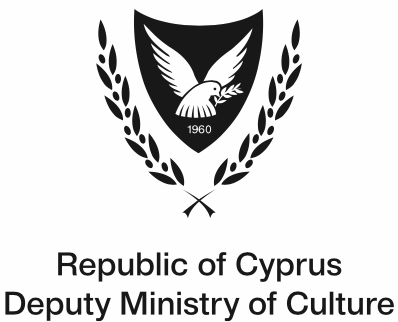

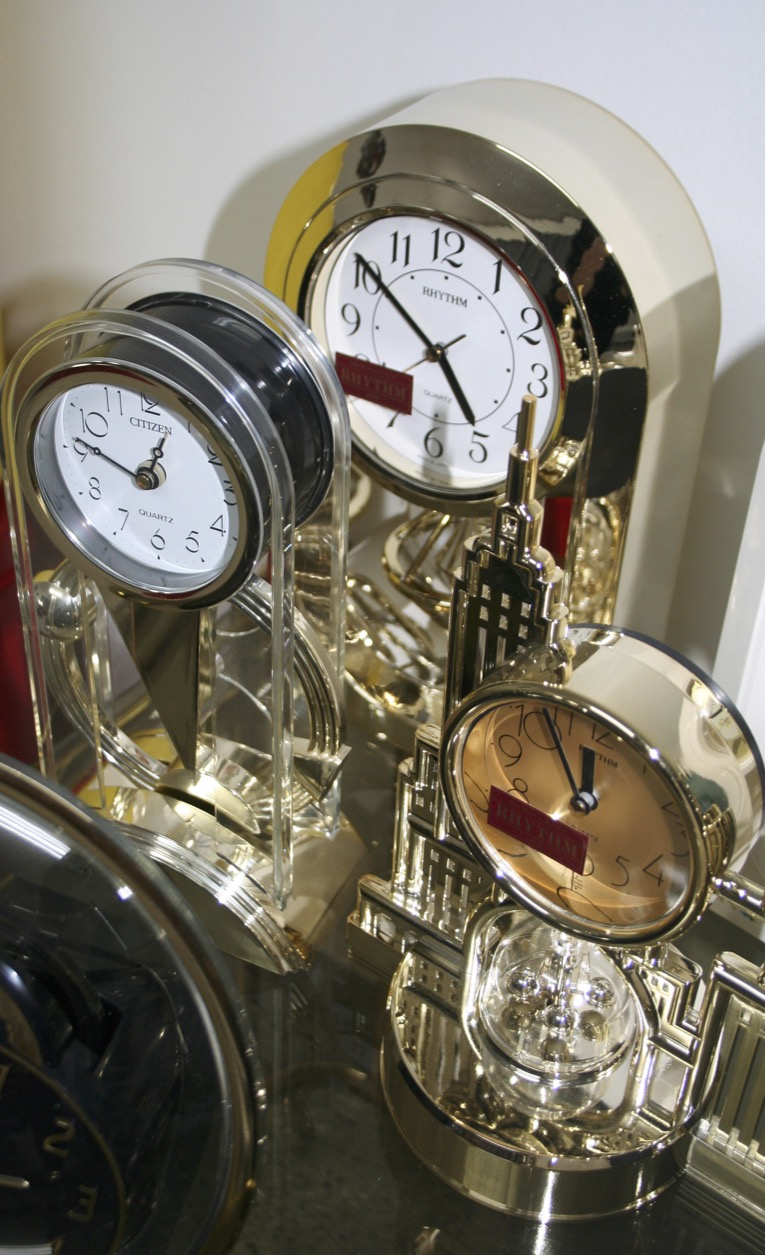
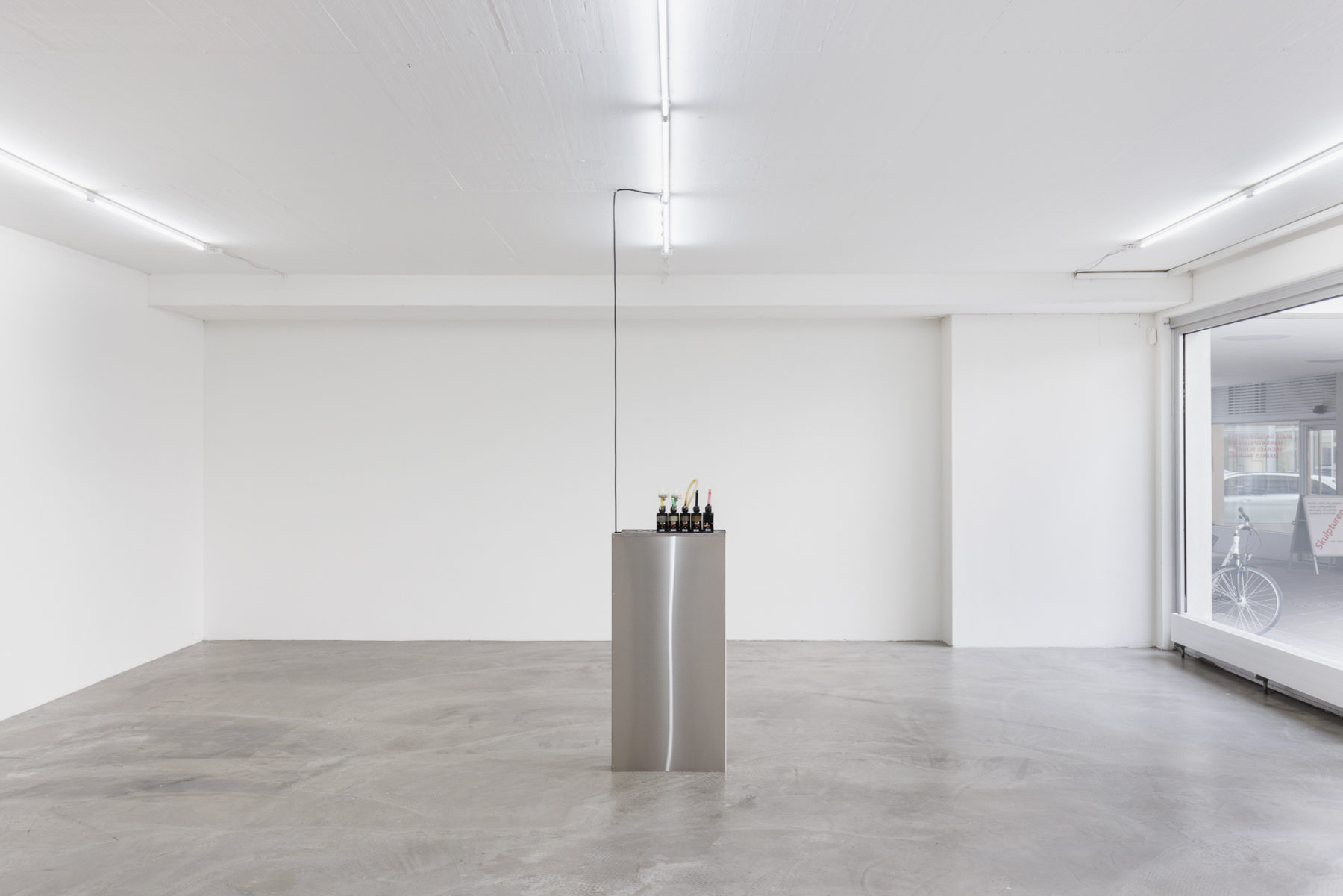
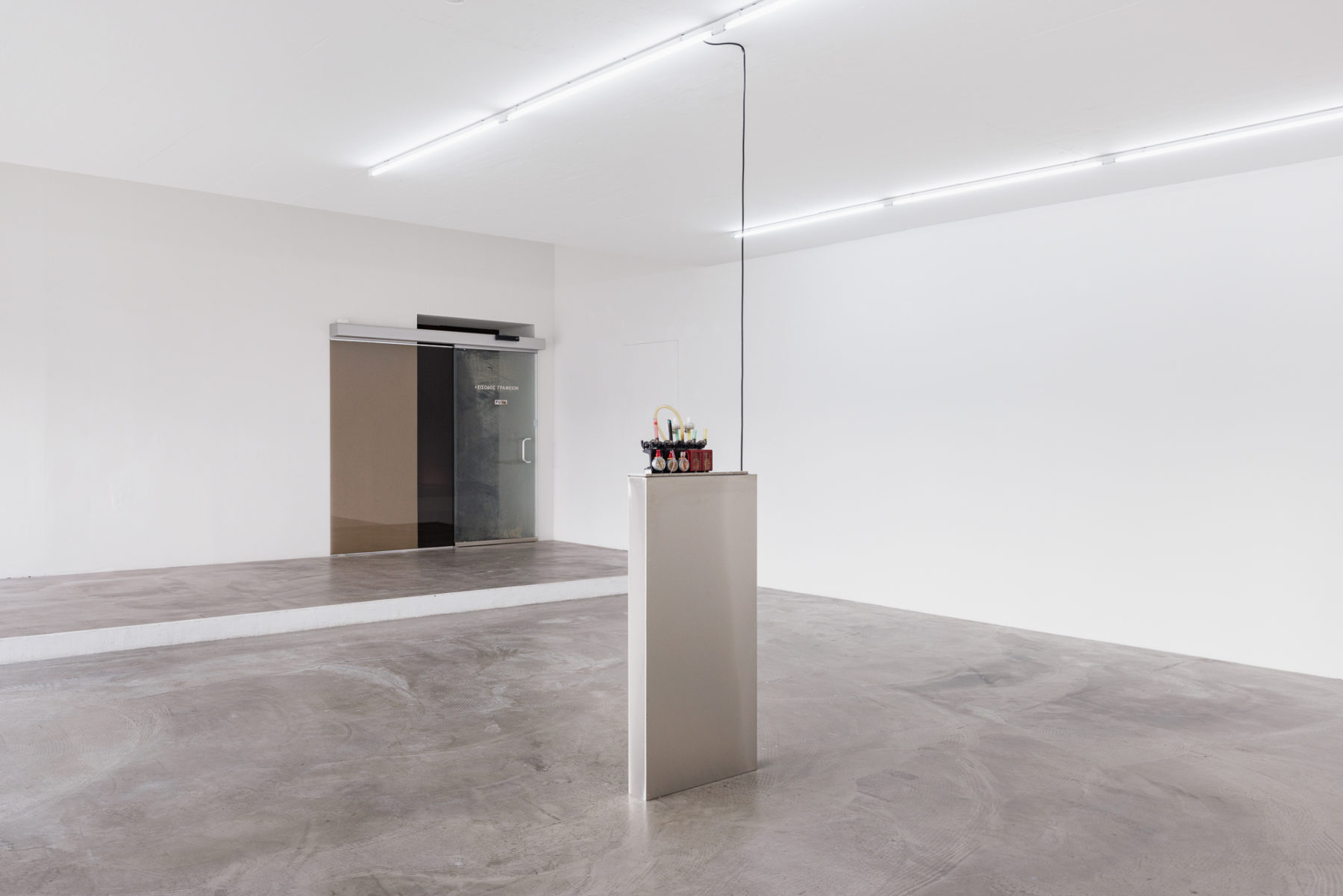
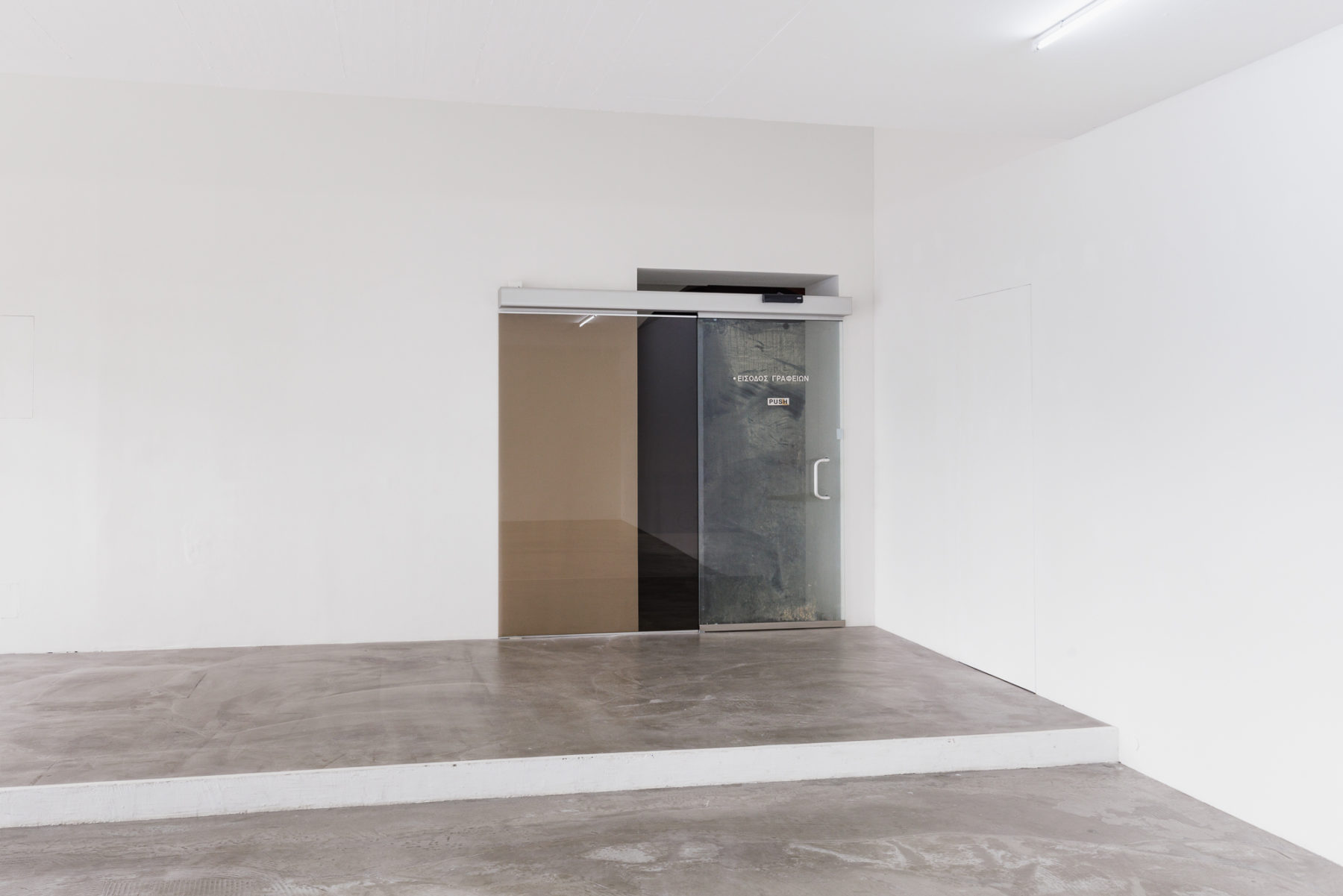
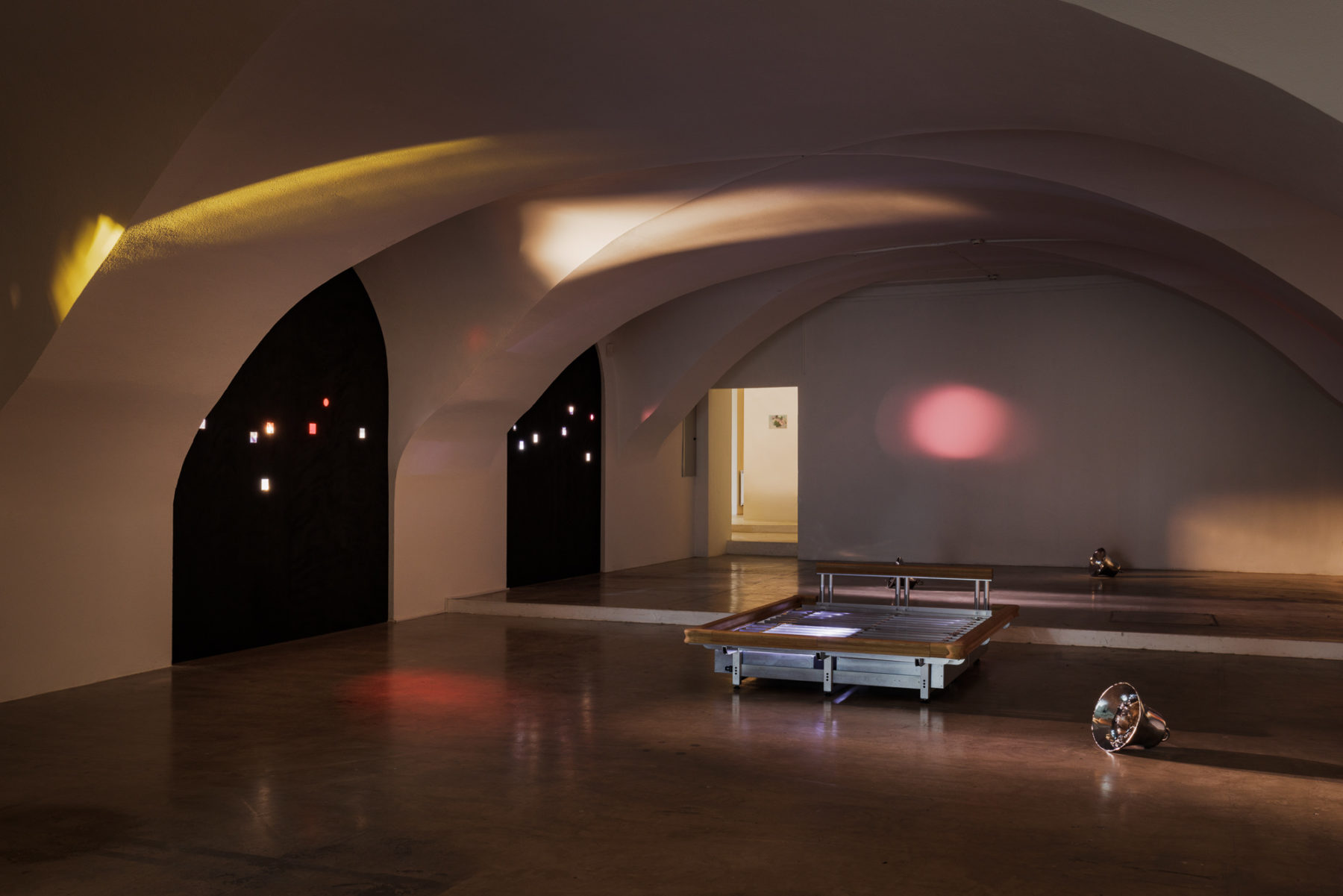
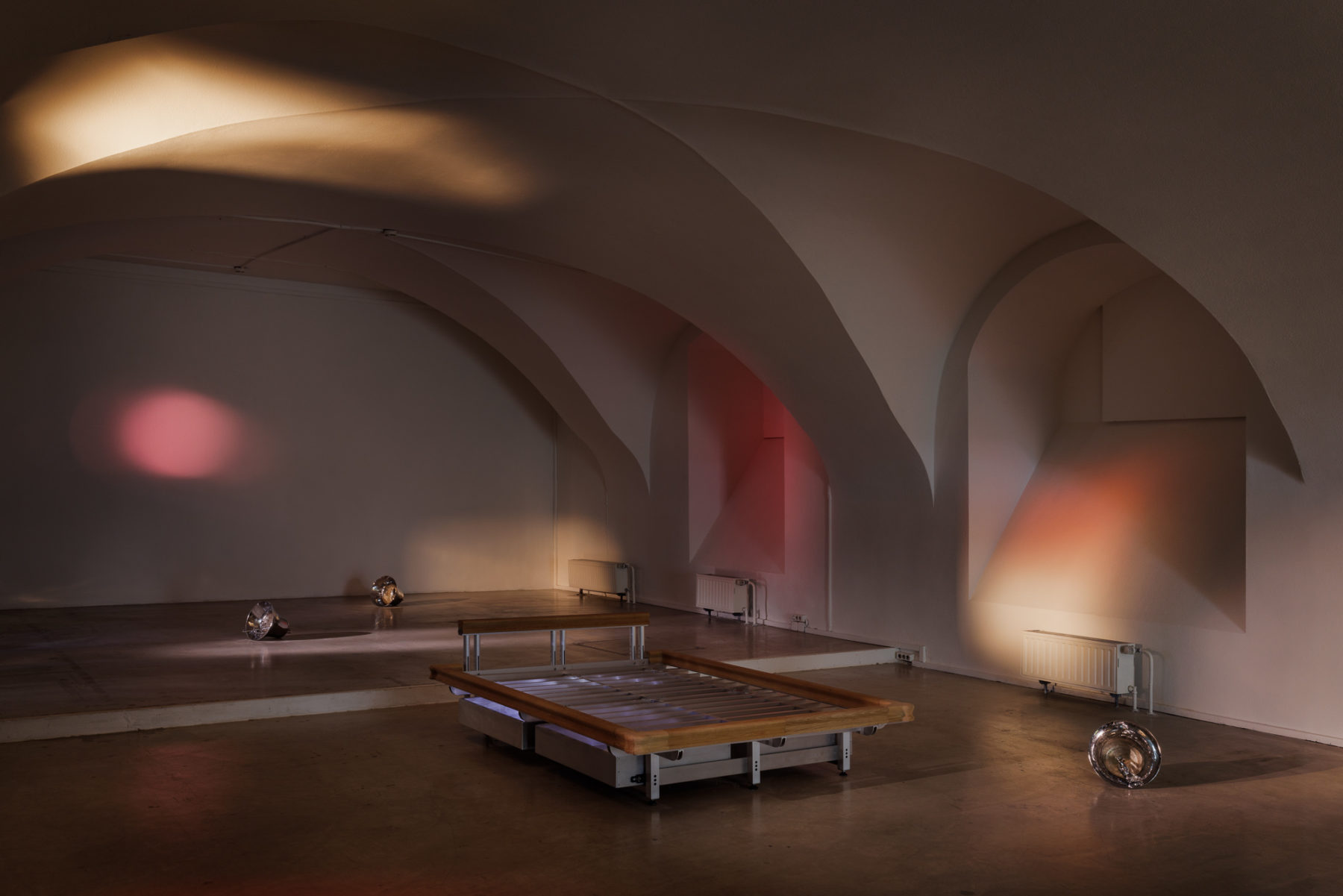
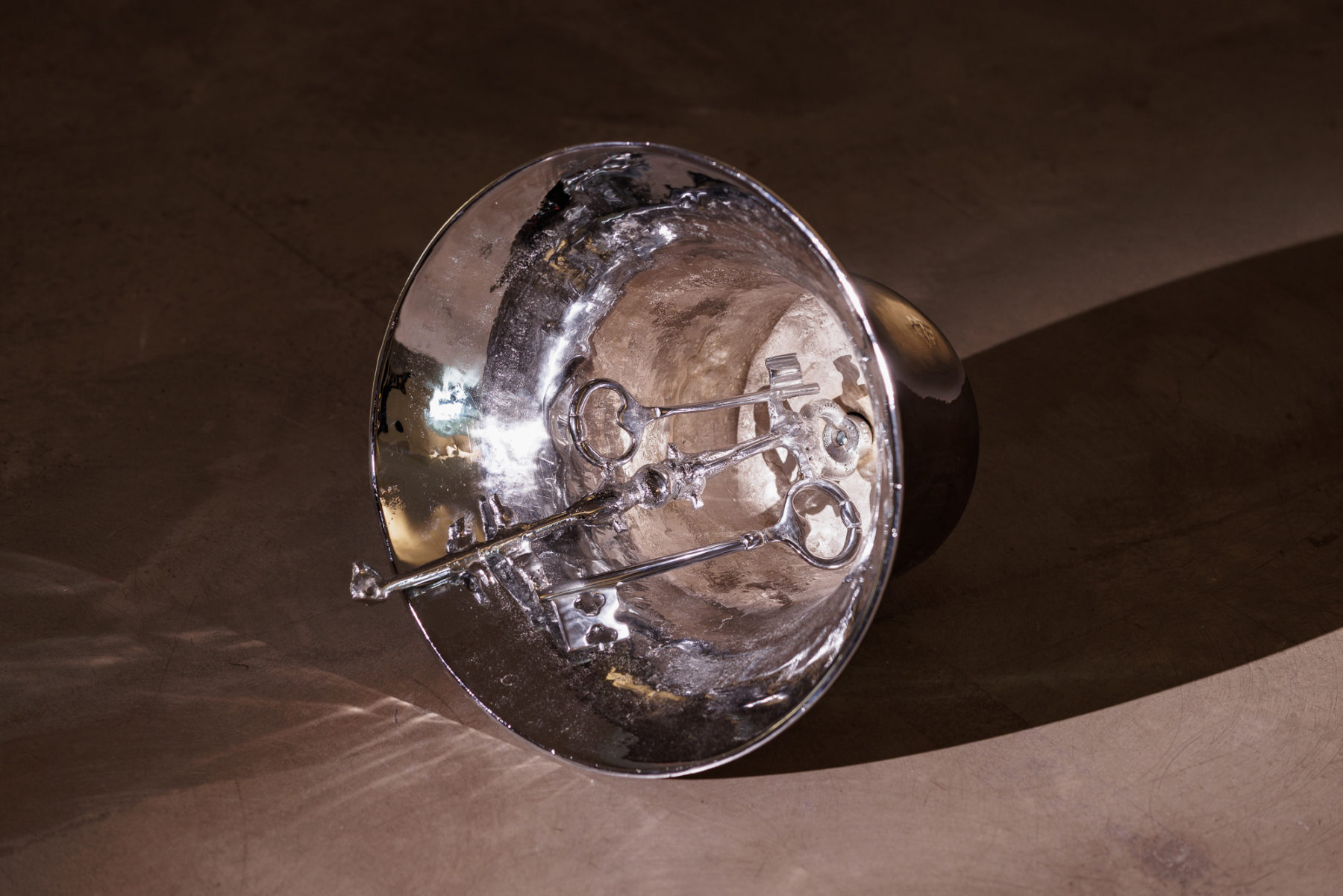
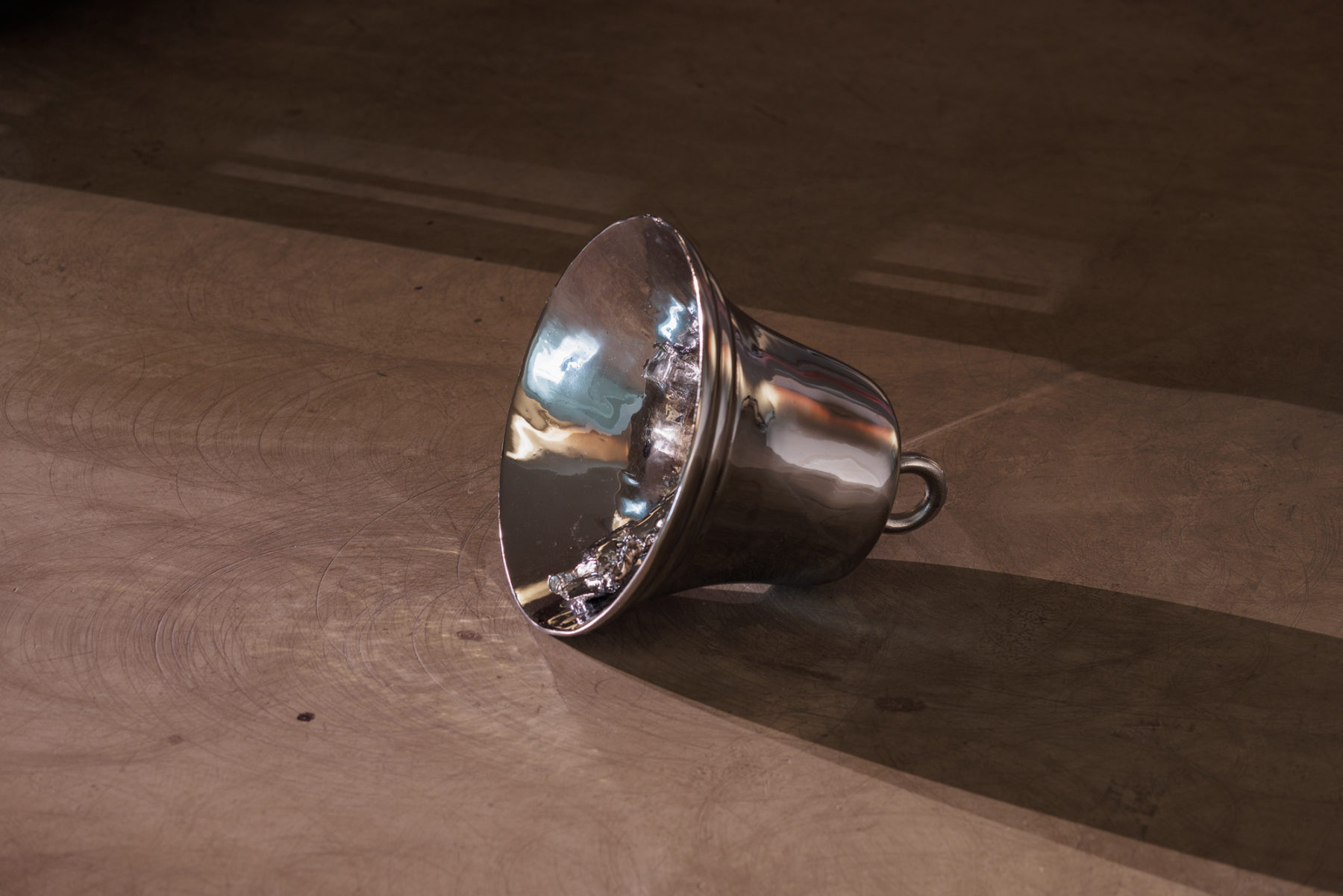
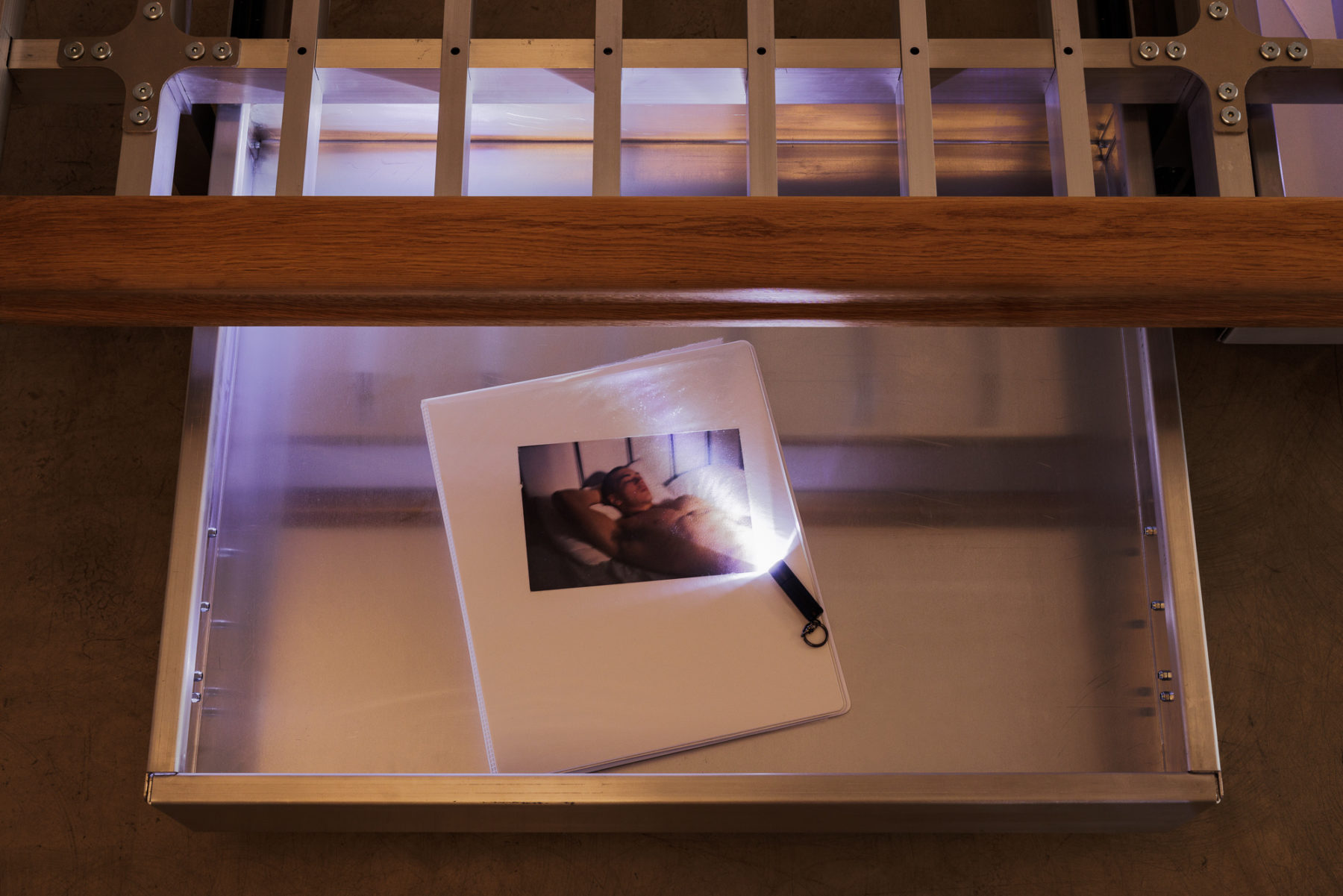
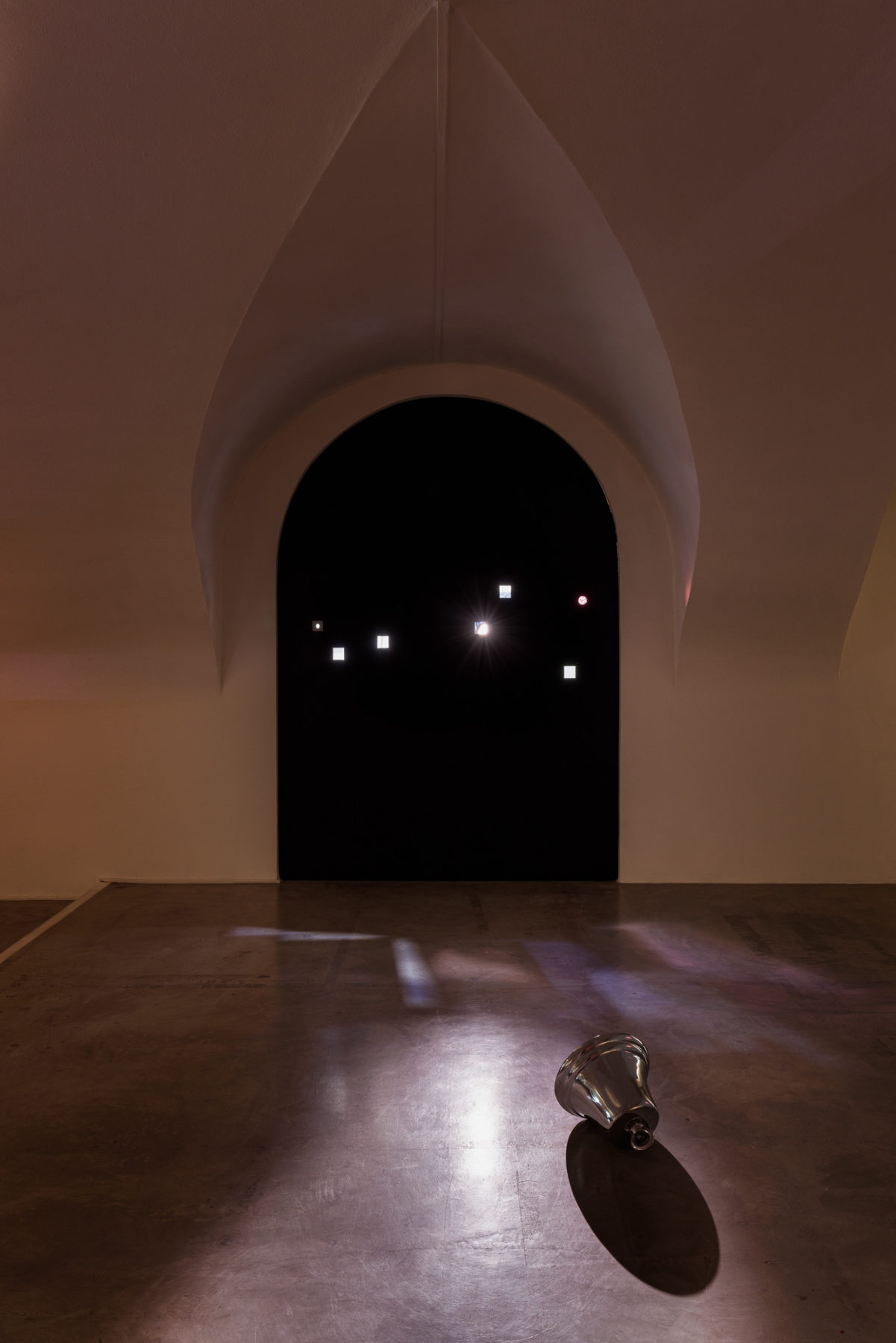
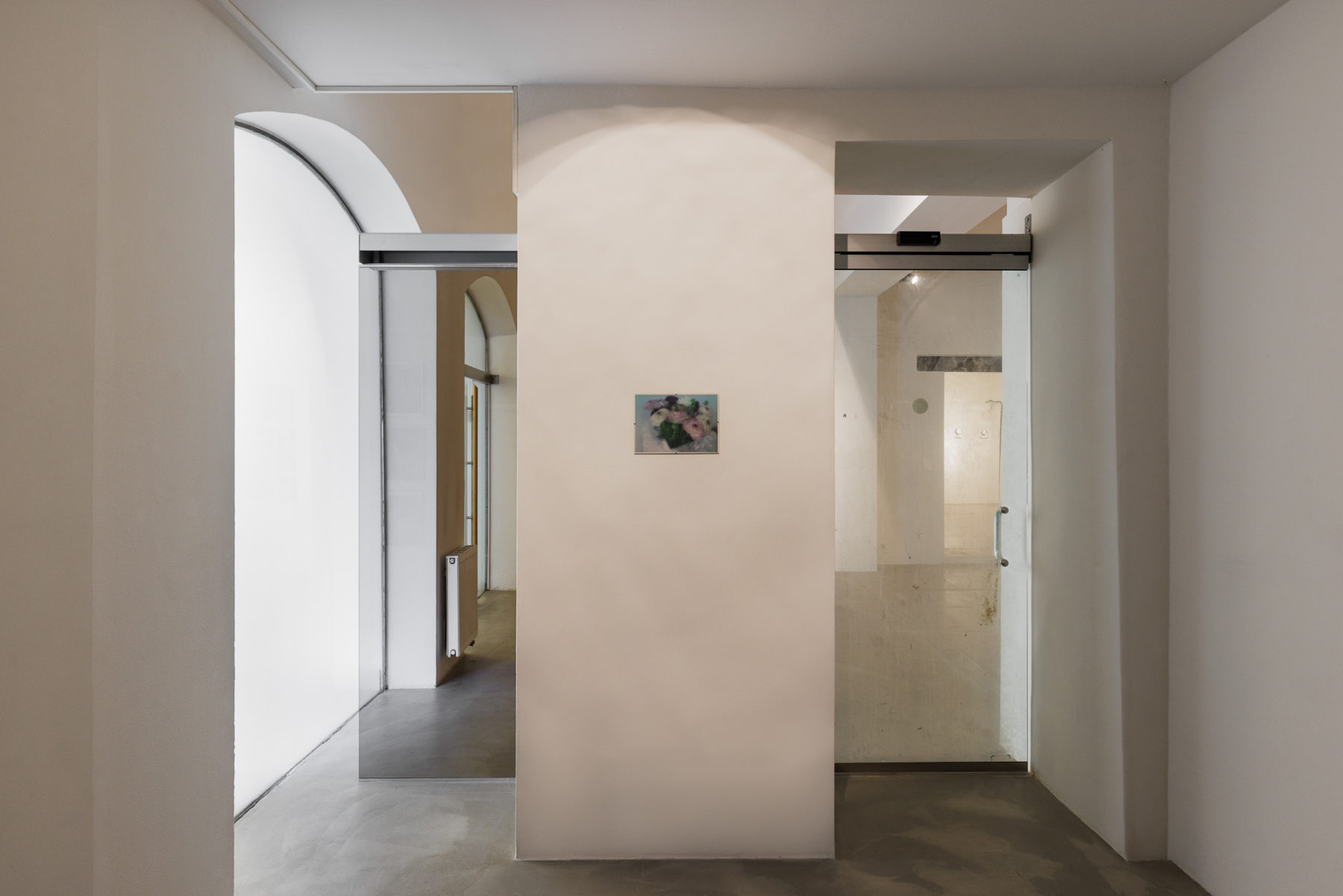
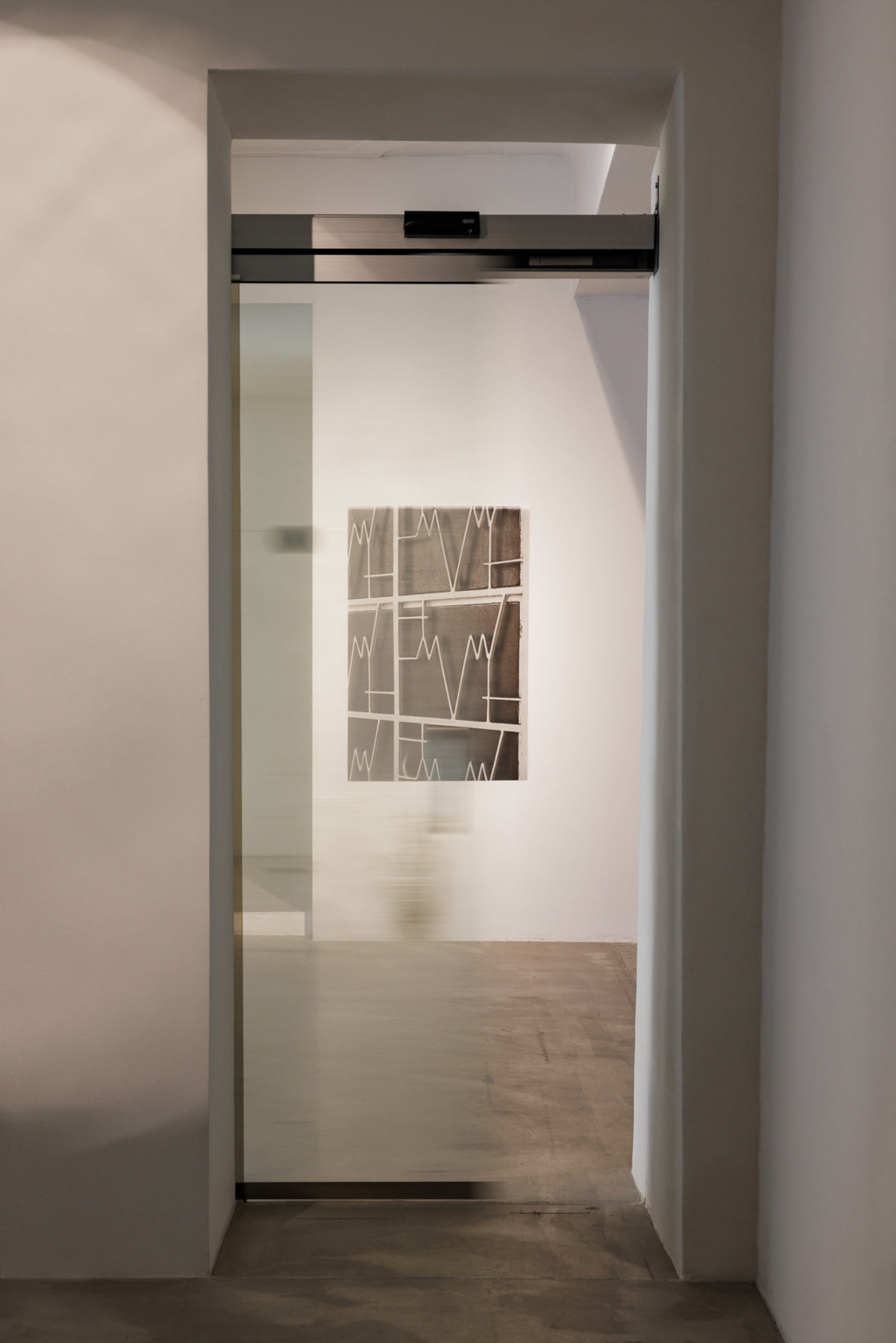
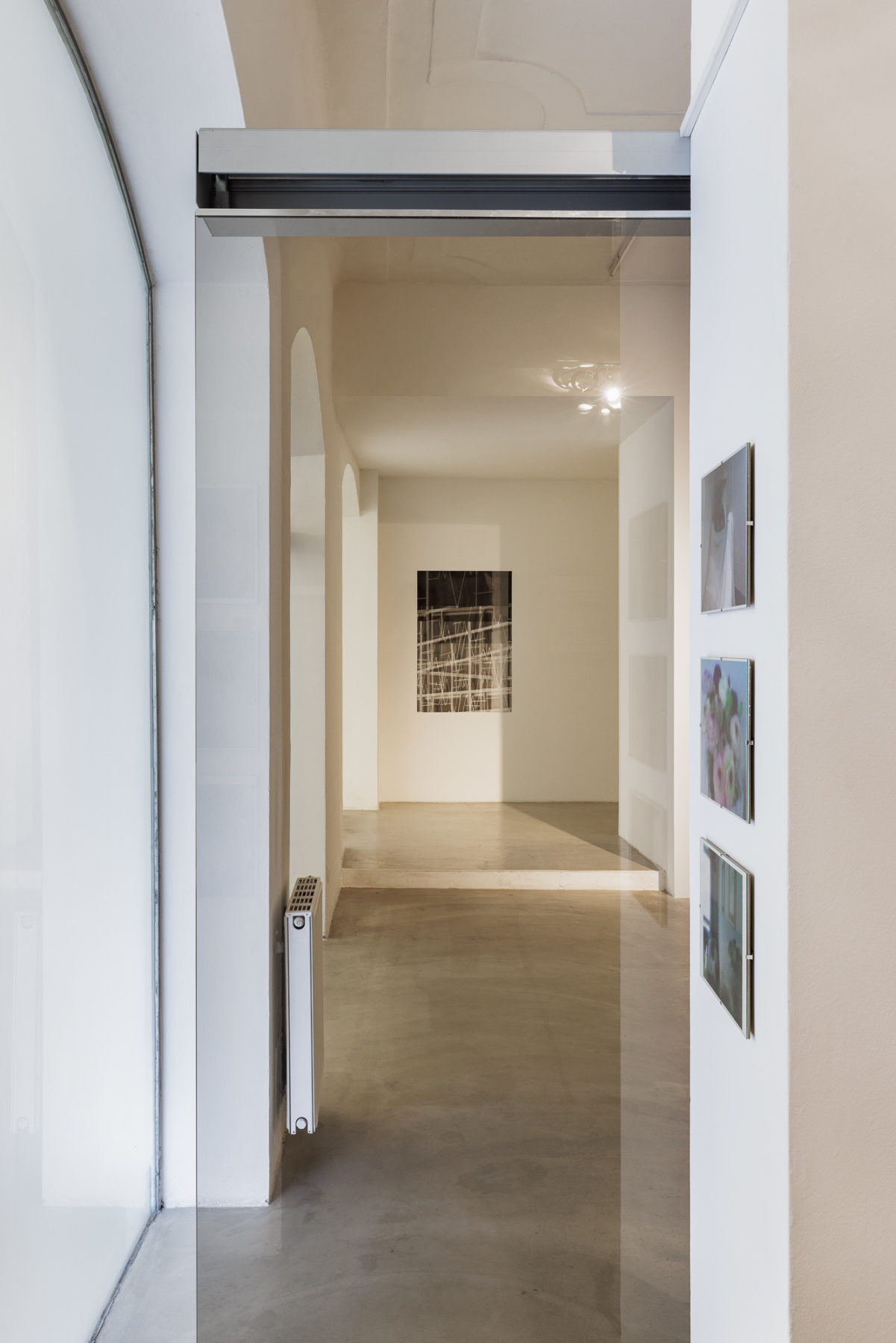
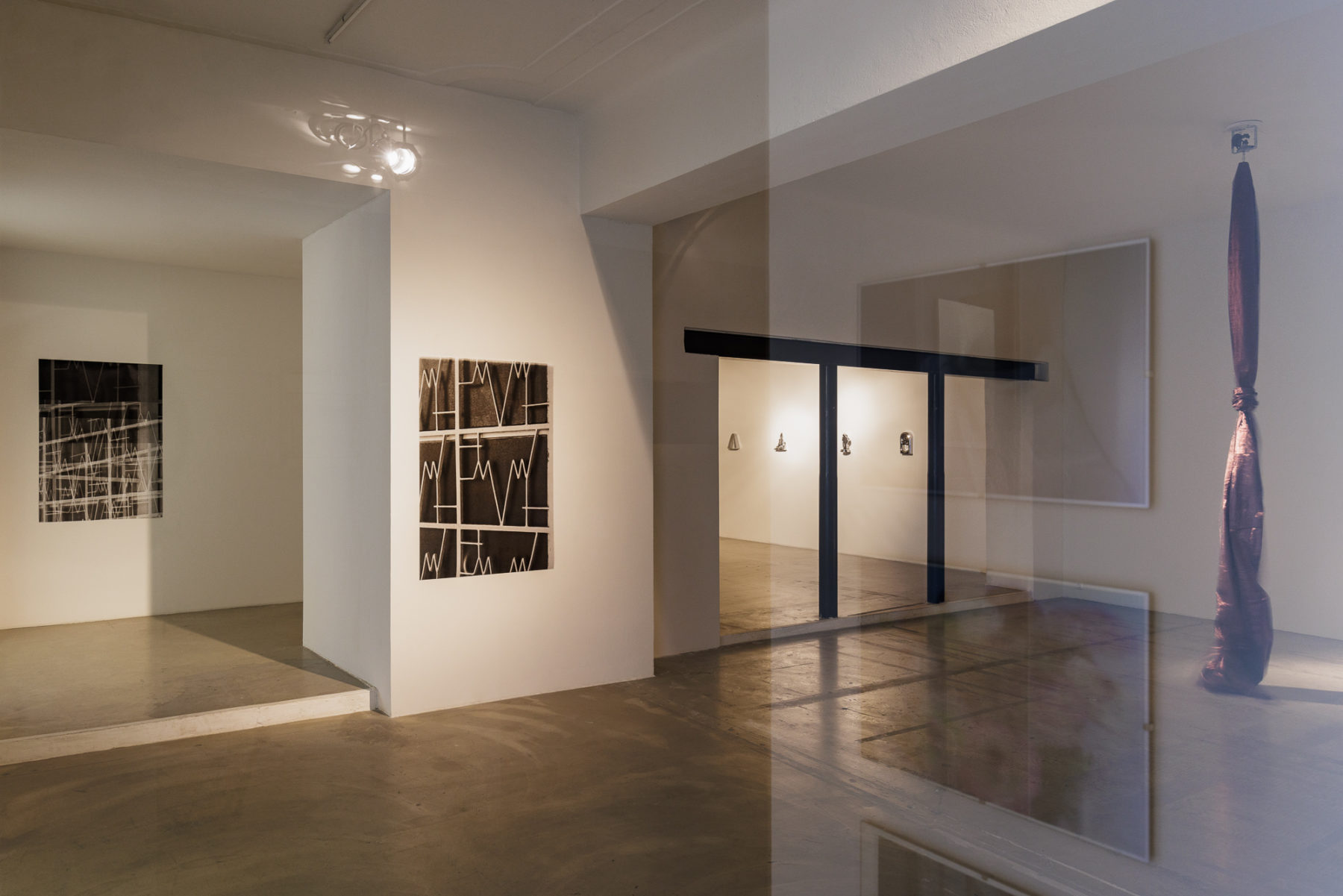
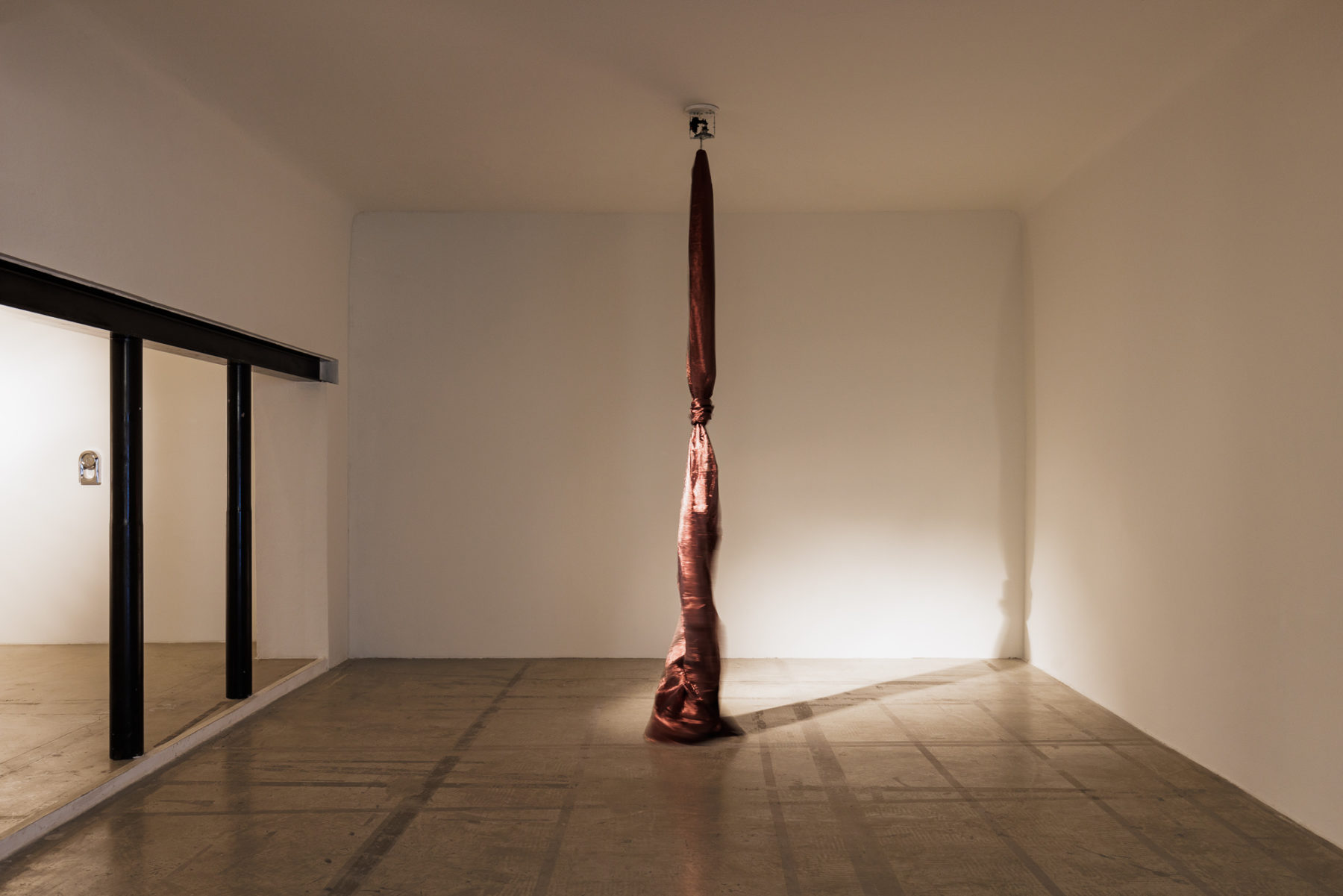
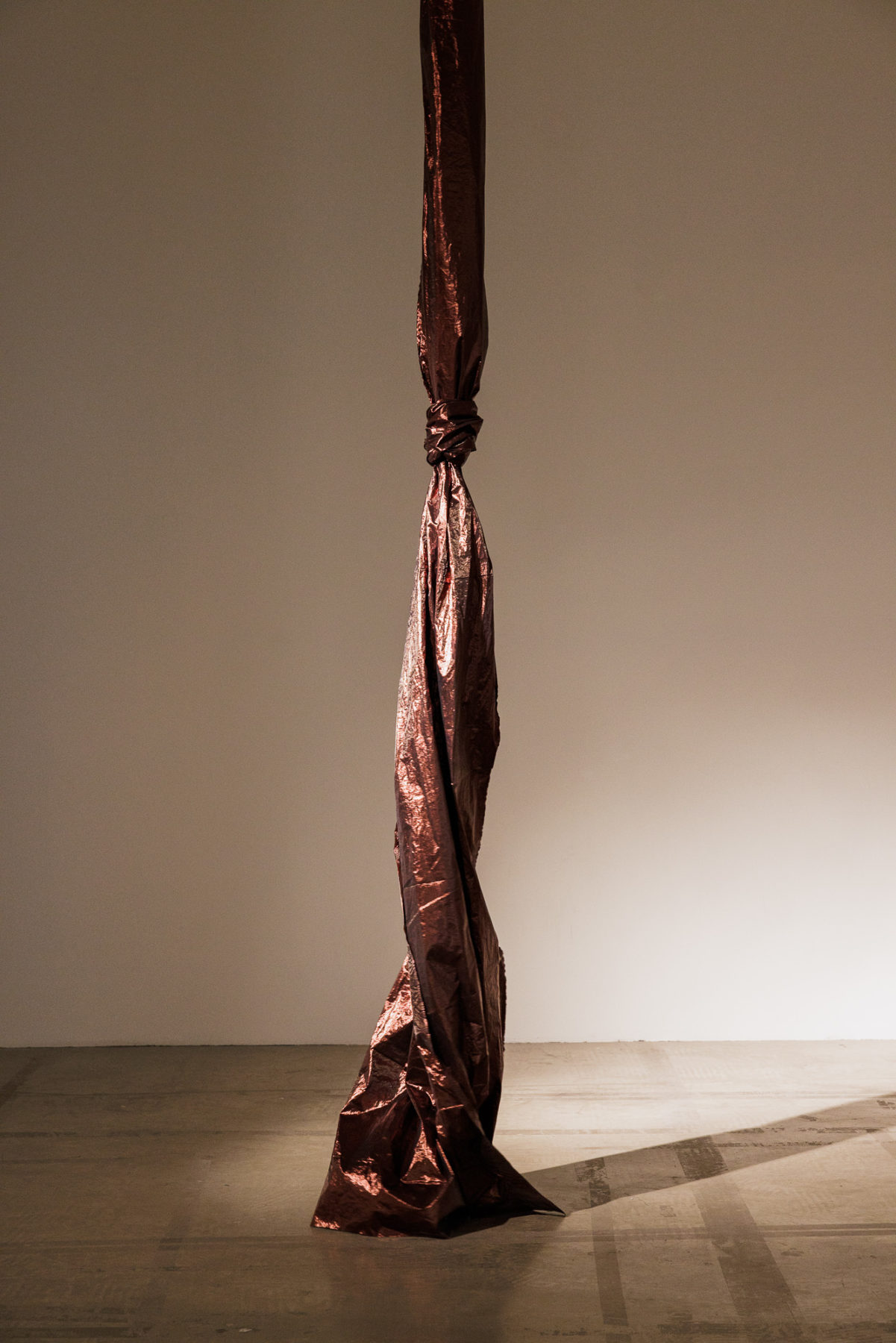
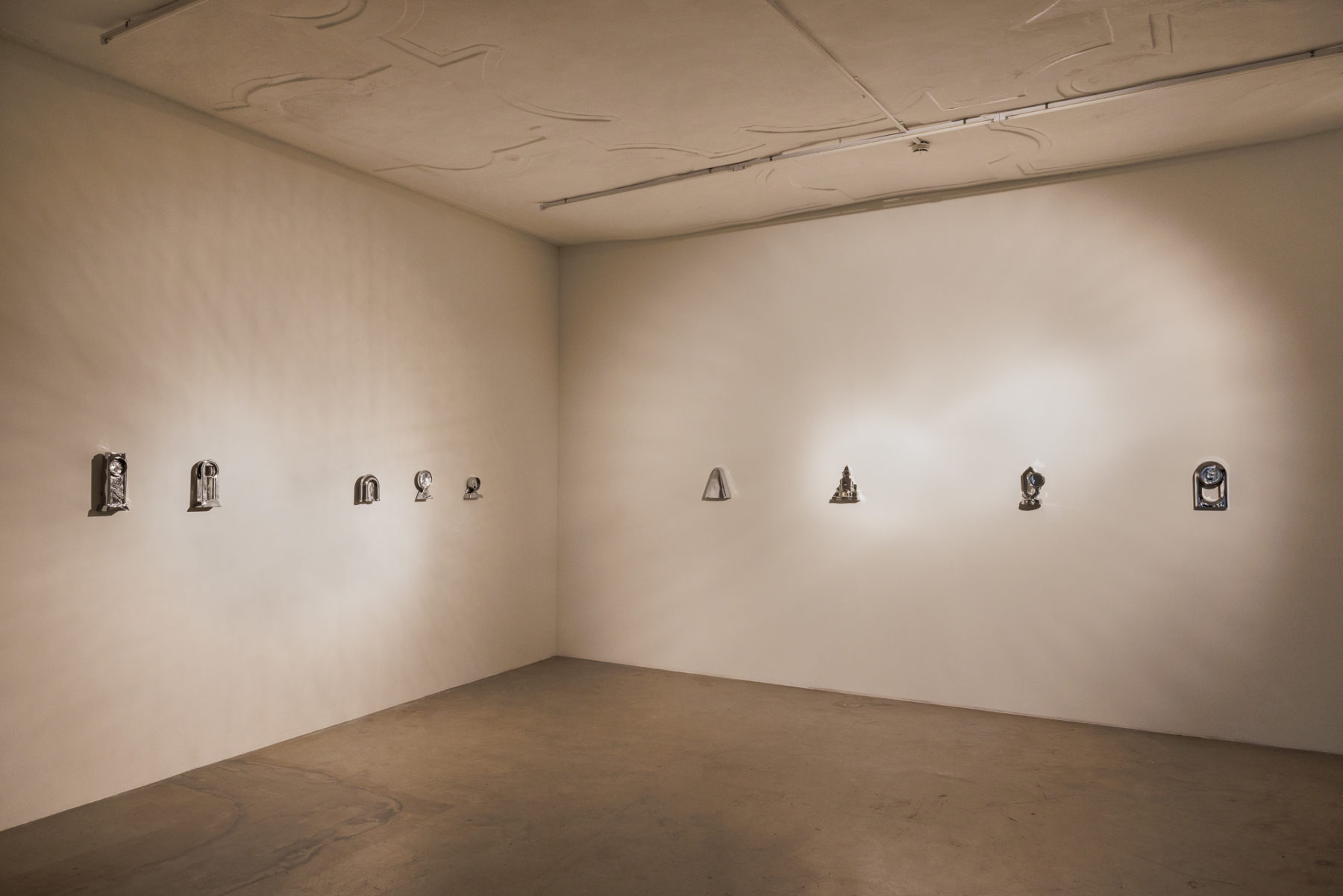
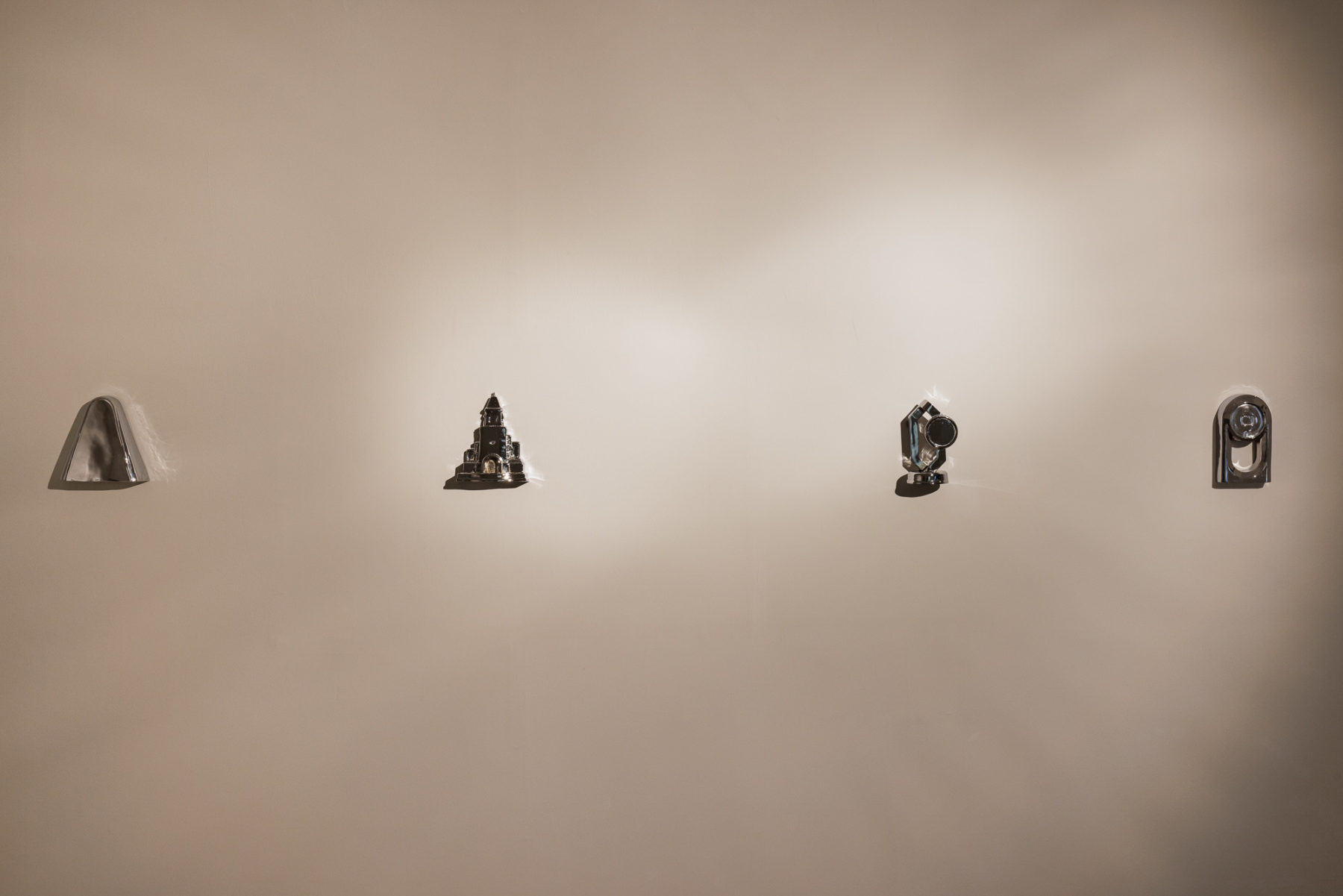
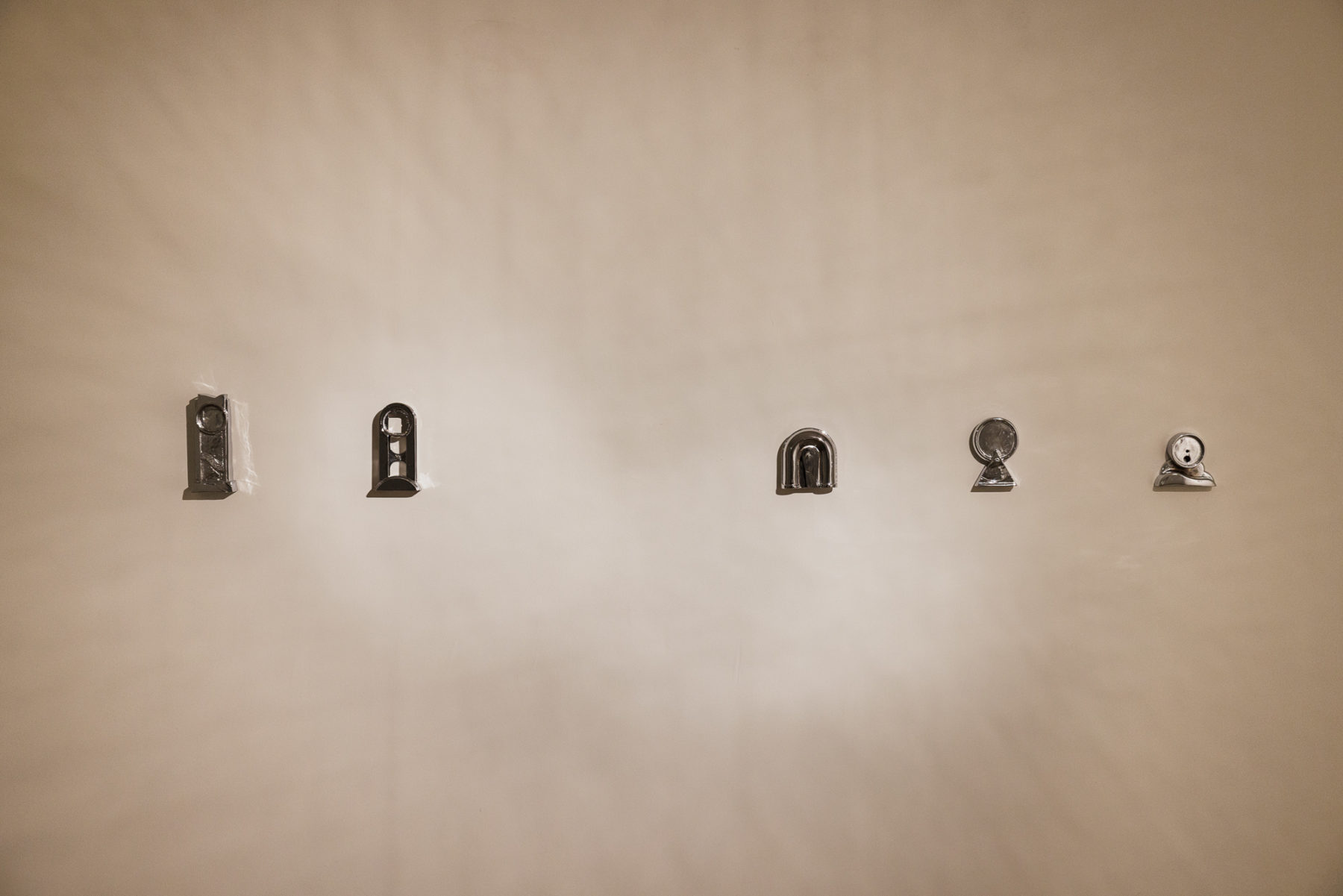
(1) Kommunikation/Kunstvermittlung (20 Stunden / Woche)
Der Grazer Kunstverein erweitert sein Team und ist auf der Suche nach einer motivierten Person, die den Bereich der Kommunikation sowie jenen der Kunstvermittlung übernehmen bzw. aufbauen möchte.
Aufgaben
– Entwicklung und Realisierung von Kommunikationsstrategien
– Social Media und digitale Kommunikation
– Redaktionelle Assistenz und Übersetzung (online & Print)
– Konzeption und Durchführung von Kunstvermittlungsprogrammen
– Entwicklung von Kooperationen mit lokalen, nationalen und internationalen Bildungseinrichtungen
– Besucher*innenbetreuung
Voraussetzungen
– Erfahrung in den Bereichen Öffentlichkeitsarbeit und Kunstvermittlung
– Ausgezeichnete Deutsch- und Englischkenntnisse in Wort und Schrift (weitere Sprachen von Vorteil)
– Interesse an zeitgenössischer Kunst und ihren Diskursen
– Hohes Maß an Selbstständigkeit und Selbstorganisation
– Erfahrung in der Organisation und im Projektmanagement
– Kenntnis der lokalen und internationalen Kunst- und Kulturszene
– Offenes, kommunikatives Auftreten
20 Stunden / Woche
Arbeitsbeginn zum ehestmöglichen Zeitpunkt. Die Stelle ist bis 31.3.2023 mit der Möglichkeit auf Verlängerung befristet.
Bewerbungsunterlagen (Lebenslauf, Motivationsschreiben, je 1 Textprobe in Deutsch und Englisch) bis 31. Juli 2022 an Dr.in Tanja Gurke tg@grazerkunstverein.org.
(2) Praktikum (24-30 Stunden/Woche)
Der Grazer Kunstverein sucht regelmäßig motivierte Praktikant*innen, die sich für zeitgenössische Kunst interessieren und Einblick in die verschiedenen Berufsfelder in einem Kunstverein gewinnen möchten.
Aufgaben
– Mitarbeit bei der Organisation und Vorbereitung von Ausstellungen
– Unterstützung bei Eröffnungen und Veranstaltunge
– Unterstützung der Presse- und Öffentlichkeitsarbeit
– Mitarbeit bei der Besucher*innenbetreuung und der Büroadministration
– Recherchetätigkeiten
Voraussetzungen
– Gute Englischkenntnisse in Wort und Schrift
– Offenheit und Kommunikationsfreude
– Flexibilität und Teamfähigkeit
– Hands-On Mentalität und Selbstständigkeit
– Pflicht- oder studienbegleitendes Praktikum bzw. Berufsorientierung
24-30 Stunden / Woche
Dauer: 2-3 Monate
EUR 300/Monat
Bewerbungsunterlagen (Lebenslauf + Motivationsschreiben) bis 31. Juli 2022 an Dr.in Tanja Gurke tg@grazerkunstverein.org.
Wir freuen uns auf Ihre Bewerbungen!
prefaces to appendage appeared in conjunction with the exhibition appendage by Iris Touliatou. It gathers a series of prefaces to the exhibition, written by Arnisa Zeqo, Lisa Holzer, Tom Engels, and Quinn Latimer, and preceded by scattered imagery of the Grazer Kunstverein’s infrastructure before the arrival of appendage. Convened by Iris Touliatou, these voices conjure premonitions, blessings, openings, or, simply put, moments of an attached before.
Editor: Tom Engels
Conceptual Development: Iris Touliatou, Tom Engels, Julie Peeters
Graphic Design: Julie Peeters
Copyediting: Tom Engels, Verena Borecky, Bryana Fritz
Photography: Simon Veres
Printing and Binding: Benedict Press, Münsterschwarzach
Edition: 350
Typeface: Kleisch GK by Chiachi Chao
63 pages, b&w, English
ISBN: 978-3-9505230-1-0
Price: 9,- Euro, 5,- Euro for members
In Tongues is a sound program that accompanies appendage, the solo exhibition by Iris Touliatou. Activated in the office spaces of the Grazer Kunstverein, the audio program challenges the usual function of this “oral space.” The oral contributions by artists including Alison Knowles, Eduardo Costa, Eleni Poulou, Hannah Weiner, and Lutz Bacher thwart the space that usually hosts oral negotiation, transaction, communication, and exchange and turn it into a site where institutional language gets infused with the poetry of a bird singing, a spy spying, or a speed racer passing by.
The program will be activated every Saturday throughout the exhibition period.
Eduardo Costa
Eduardo Costa Chats With The Birds I, 2014, Audio, 1:26
Eduardo Costa Chats With The Birds II, 2014, Audio, 4:45
Eduardo Costa Chats With The Birds III, 2014, Audio, 6:22
Courtesy of the artist.
Eleni Poulou
Attunement and the white telephone, 2022, Audio, 8:50
Courtesy of the artist.
Alison Knowles
California Sandals, 1991, from Frijoles Canyon, written by Alison Knowles & Joshua Selman, performed by Alison Knowles, originally released in 1992 on CD & cassette by Nonsequitur Foundation/¿What Next?, Audio, 4:59
Copyright Alison Knowles & Joshua Selman. Courtesy of Alison Knowles.
Hannah Weiner
Three Poems, 1969, from Tape Poems, ed. Eduardo Costa and John Perreault, 1969.
Poem 2: The Problem, Audio, 0:29
Poem 3: Helium and Krypton, Audio, 1:06
Poem 4, Part 1: The Sound of an Object in One-Dimensional Motion Along a Line from A to B, Audio, 0:41
Poem 4, Part 2: The Sound of an Object in One-Dimensional Motion Along a Line from B to C, Audio, 0:42
Poem 4, Part 3: The Sound of an Object in One-Dimensional Motion Along a Line from C to D, Audio, 0:39
Poem 4, Part 5: Speed Racer, Audio, 1:00
Courtesy of Eduardo Costa, and Charles Bernstein for Hannah Weiner in trust.
Lutz Bacher
The Sea. Spies Like Us, 2012–2013, Audio, 18:02
Courtesy of The Estate of Lutz Bacher and Galerie Buchholz.
Eduardo Costa (b. 1940, Buenos Aires) works and lives in Buenos Aires. He lived 25 years in the United States, where he collaborated with Vito Acconci, Scott Burton, Dan Graham, John Perreault, Marjorie Strider, and Hannah Weiner. In Brazil, he was part of Helio Oiticica’s group which included Lygia Clark, Lygia Pape, Antonio Manuel, and others from the school of Rio. Costa’s work is in the permanent collections of MoMA, New York; Guggenheim Museum, New York; The Metropolitan Museum of Art, New York; Museo Nacional Centro de Arte Reina Sofía, Madrid; Museu de Arte Moderna, Rio de Janeiro; amongst others.
Eleni Poulou has been making music for over 30 years with different musicians in various music formats, including The Fall, Lee Scratch Perry, Shizuo, and currently with NOHE NOSHE, Kaffe Mathews, The Caretaker/James Leyland Kirby, Zsolt Sores, Hilary Jeffery, Wolfgang Seidel, Burkhard Beins, Moon Gear, Andre Vida, Recycling Plastic Inevitable, and many other friends and colleagues. She has several monthly radio shows on Cashmere Radio and Movement Athens, among others. Poulou works and lives in Berlin.
Alison Knowles (b. 1933, New York City) is a visual artist known for her sound works, installations, performances, publications, and association with Fluxus, the experimental avant-garde group formally founded in 1962. A founding member of Fluxus, Knowles began using Cagean compositional devices, like indeterminate performance and chance operations in the early 1960s. Knowles collaborated with Marcel Duchamp on a screen reprint of his Coeurs Volants and designed and co-edited John Cage’s Notations (1968), a book of visual music scores. Among her Fluxus performance scores are Make a Salad (1962), Shoes of Choice (1963), and The Identical Lunch (1969). In 1967, Knowles’s The House of Dust was among the first computerized poems. Knowles lives and works in New York City.
Hannah Weiner (b. 1928, Providence, d. 1997, New York City) was an experimental poet often associated with the Language Poets, an avant-garde group of writers including Bernadette Mayer, Leslie Scalapino, Susan Howe, and Charles Bernstein. In the 1970s, she began to compose poems (her “clairvoyant poems”) based on the words she saw on her forehead and other surfaces. Weiner’s published collections include a volume from her pre-clairvoyant period, The Magritte Poems (1970); Clairvoyant Journal (1973); Little Books / Indians (1980); Code Poems (1982); poems based on international maritime codes, SPOKE (1984); The Fast (1992); We Speak Silent (1996); and the compilation Hannah Weiner’s Open House.
Lutz Bacher (1943-2019) lived in Berkeley, California, and New York City. Her archive, The Betty Center, is in New York and open to visitors by appointment.
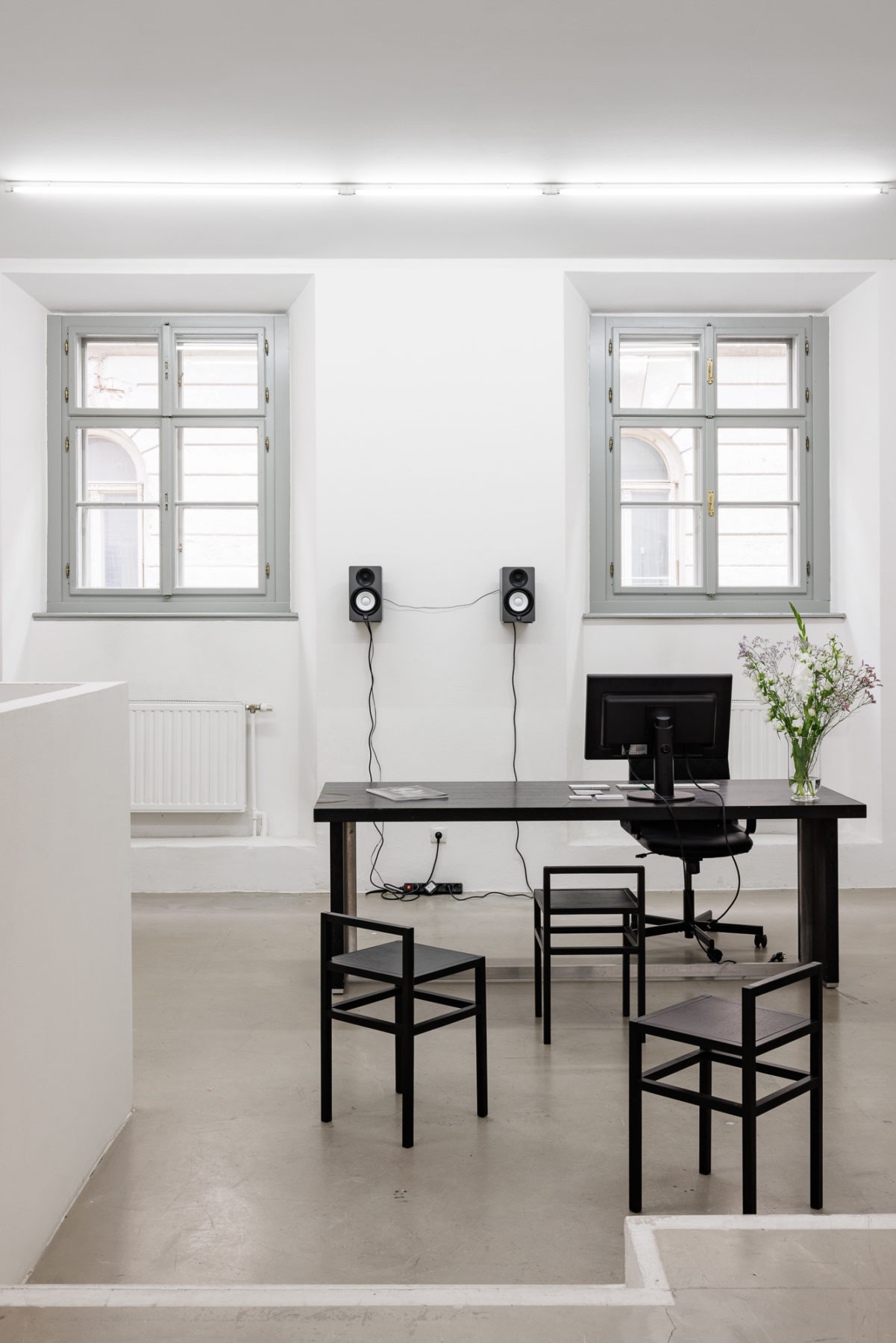
On the occasion of appendage, the solo exhibition by Iris Touliatou, Touliatou and Tom Engels, curator of the exhibition, will enter into a conversation to discuss the making of the exhibition and Touliatou’s work at large.
Attentive to the ways object, gesture, and affect are mutually implicated, appendage quivers between the remnants of fractured existence and the unbridled desire and pleasure to hold things—together and anew. Harnessing both situated and dislocated supplies, appendage unfolds as a series of fixtures, both material and situational, that are in turn connected or plugged into the architectural and social infrastructure of the Grazer Kunstverein.
doorways, door frames, bar handles, manual mechanisms, outdoor connectors, door eyes, cabin hooks, hinges, stoppers, 3M double-sided adhesive, self-adhesive, window tint removal kit, PVC shock absorber & screws, holes, original column, modern copy of original column, partition walls, galvanized steel, plasterboard, white paint, Olympia black corded phone, wall text, wall mount system, wall absorbers, phone memory, ring tone, handsets, large buttons, cell dead zones, audio assist feature, remote access, cable, splitter, missed calls, call history, membership fee, membership benefits, dispatches, open letter, agreement template, computer floor, calcium sulphate, high strength polypropylene, vinyl, linoleum, laminate, rubber, panels lowered and reversed, removed carpet, base, head, pedestal assembly, stringer, previous institutional identity, stationery, bumpers, nipple shields, sugar substitute, stretch film, food processor, standard blade, drinking water fountains, fittings, rings, stainless steel pipes, elbow, reducer, tee type, cross type, coupling, unions, adaptors, olet, fixtures, flanges, valves, drains, rub handling, outlets, distribution boards, equipment support, Humanscale NeatLink cable management, defender mini, channel rubber, defender cable crossover defender compact, line wiring, today’s standard, wall jack, 30 meter telephone extension cable, 300 bathing suit sets, 300 shirts, motors, chilled water pump, water booster, transducer, cable, charger, network, alarm, security key box, password, extender pro, repeater pro, long range access point, Waveshare screens, black glass, cartons, organic eggs, safety lights, lights on loan, lights for an exhibition, 3 racks, 6 squares, fluorescent bulbs, electrodes, shunted sockets, screw-type base, thermal paper, adding machines, coating, zero ink system, heat, sun, friction, arm fetish, hand fetish, transport van, CB0209PH, books on events according to your date of birth, old astrology guides, prefaces, wires, metal fences and cages retired from circulation, brushed nickel 6-pack stainless steel, gold threads, interior doors, separators, hand rests, windbreakers, wine glasses, magnetic panties, happiness pills, unseizable property, turquoise shades, exterior emulsion, buckets, ice machine loan, oxygen concentrator, PVC belts, plastic wrap, two identical melamine boxes with locks, Christmas trees, the last 230 objects from a store (sold), various for birds, some big black leather couches, we women complete series, free admission,… aggregate and detach.
appendage emerges in the structural dissection of the institution as a public body. Currents of access, data, phone calls, water supply, temperature, electricity, architecture, geography, legal bond, membership, and support structures are scored anew as they are redistributed, diverted, or disrupted. In such an instance of structural glitch, appendage lifts institutional functions from their normative behaviors and replenishes them with transient affiliations and elective affinities.
appendage exposes how objects and their functions continue drifting inseparably from personal and collective attachments and gives body to the enmeshment between infrastructure and affective economies. It lays the transactional conditions that constitute the collective dimensions of intimacy bare and inflamed.
appendage will be accompanied by prefaces to appendage, a publication with contributions by Arnisa Zeqo, Iris Touliatou, Julie Peeters, Lisa Holzer, Tom Engels, and Quinn Latimer.
appendage will host a sound program with oral contributions by artists including Alison Knowles, Eduardo Costa, Eleni Poulou, Hannah Weiner, among others.
On June 24, in addition to the opening at Grazer Kunstverein, HALLE FÜR KUNST Steiermark (18:00) and <rotor> (20:00) will open their exhibitions. The opening speech at Grazer Kunstverein takes place at 19:00. After the openings, there will be a DJ set and drinks at Kombüse. A shuttle bus from Vienna will be provided:
15:00: Departure Opernringhof, Vienna to Graz
22:30: Departure Burgring 2 to Vienna
Registration at: lw@halle-fuer-kunst.at
Iris Touliatou (b. 1981, Athens) lives and works in Athens. Recent solo exhibitions include Organs, EXILE, Vienna (2020); and Overnight, Radio Athènes, Athens (2019). Touliatou has been part of the group exhibitions 2021 Triennial: Soft Water Hard Stone, New Museum, New York (2021–22); Work and Leisure, Milan (2022), When I state I am an anarchist, PLATO, Ostrava (2022); Anabasis, Rodeo Gallery, Athens (2022); Eclipse, the 7th Athens Biennale (2021); Lives of an Object, Andreas Melas and ARCH, Athens (2021); The Way In, Haus N Athen, Athens (2021); Anti Structure, DESTE Foundation, Athens (2021); Interval, Goethe-Institut Athen (2021); The Same River Twice, Benaki Museum, Athens (2019); and Manifesta 12, 5x5x5: Selected Projects, Palermo (2018), among others. In 2022 Touliatou will participate in SIREN (some poetics) at Amant Foundation, New York. appendage is her first institutional presentation in Austria.
